#Brilliant-Eye-Jewe
Explore tagged Tumblr posts
Text

🔔 It's December! That means it's One Direction Advent fic season! Advent fics are generally posted daily from December 1 to December 24/25. Don't forget you can subscribe to the author to get a daily email reminder to read their Advent fic! 🔔
🕯️ All The Lights by LetTheMusicMoveYou / @letthemusicmoveyou28 {Fic post}
“As you know, every year Syco Industries throws the Holiday bash of the year. Their annual Christmas Eve charity ball, held in the building’s lobby.”
Louis arches a brow. “Robbing a Christmas charity? That’s your brilliant idea? That’s a little low don’t you think?”
Niall snorts. “The only charity that money is going to is in Simon Cowell’s pocket and we both know it.”
He’s not exactly wrong.
“Alright sure, but I’m pretty sure Santa still frowns upon stealing.”
Niall just grins.
“Being on the nice-list is vastly overrated anyway.”
(Or a holiday heist featuring a rag-tag team of lovable criminals, a pair of exes who hate each other except for when they don’t, and a lot of festive chaos along the way).
🎁 You Should Be Here With Me by @lululawrence {Fic post}
The festive period is a traditionally hectic one in the world of Premier League football, and this year is no different. A lot is riding on how Manchester United is able to come through the fixtures in the coming weeks.
Louis and his teammates know all too well the pressure that is on their shoulders. They need to prove, not just to fans of the club but the entire league, that they still have what it takes to be a team worthy of fighting for the top of the table.
Throw in the fact that Louis is all too aware that he's not getting any younger in a profession that demands your peak physical fitness year round and the incredibly fit Harry Styles, who is part of the club's social media team, and this year's festive period might just be the most important one yet.
🎅 Your Reign is Free (to give along to Santa) by LadyLondonderry / @londonfoginacup {Fic post}
It’s Christmas Eve. It’s a totally normal Christmas Eve. Harry and Louis have some friends coming by, and some totally normal birthday and Christmas plans. It’s a totally typical totally normal Christmas Eve.
A fic that takes place over 24 (+1) hours where surely everything will go totally to plan.
🦌 You'll Never More Roam by @tommokat {Fic post}
Harry likes his job as a traveling nurse. It pays well, it allows him to travel across the country, and he doesn't have to worry about an annoying coworker past an average of 13 weeks. The pros of never staying put have always beat the cons. Until one of those cons has bright blue eyes, a fluffy companion, and a heart of gold.
Tax exemptions don't hold a candle to Louis Tomlinson. And as Harry's about to find out, neither does his heart.
🌟 Find a light, hold tight by louisismycat / @liminalkittyfics {Fic post}
a fic about finding light and holding tight - hanukkah for everyone!
Told from the gentile perspective of Louis, recently widowed and trying to cultivate his son’s connection to his paternal Jewishness, Find a light is intended for everyone — Jews and gentiles alike — who might find comfort in the light, wisdom, and warmth of Hanukkah.
🔔 Larry Xmas Countdown by 28goldensfics / @28goldens {Fic post}
Harry and Louis will stop at nothing to make each other happy, even if that means robbing Buckingham Palace for a set of priceless bells they use to ring on Christmas morning.
✨ Twinkling Lights, Fated Nights by Darling28 / @darling-28 {Fic post}
Louis is an Omega who doesn't like being told what to do and is happy with his single life in the snowy town of Frostbrook after a terrible previous relationship. But then Harry turns up - an Alpha who is anything but the typical macho. Instead of giving commands, he makes an effort to understand Louis, which annoys him more than anything. But Harry doesn't give up.
And maybe that's exactly why they fit together so well: Two people who don't fit the cliché at all, but who suddenly feel more for each other than they would have expected. In the midst of lights, snow and mulled wine, something begins to grow that neither of them had planned - even if Louis would rather not admit it.
A story about healing, love and finding home in each other.
❄️ Fluffcember 2024 by Candy_Kittens / @candyfloss-kittens
A collection of one-shots for Fluffcember 2024. All of these one-shots will be for One Direction rpf.
🌲 Through the Riots – Will You Guide Me When I'm Lost? by childofthelarents
His hands had a death grip on Harry's arms, making him unable to push back. "Fuck you," Harry growled, looking like he was seconds away from punching Louis straight in the face. The softness of his features had been replaced by pure fury, the green of his eyes burning into Louis' soul. As the seconds passed, Harry seemed to realize the lack of space between them, his eyes growing less piercing and more irritated as he scanned Louis' face.
~ Louis had his heart set on rooming with his best friend Zayn, but fate—or a cruel housing assignment—stuck him with Harry, who seems to hate him instantly (and boy, is that feeling mutual). Determined to find a way out, Louis quickly realizes that their fiery clashes only make things worse, fueling the hostility between them. Yet, as tempers flare and boundaries blur, their battles take an unforeseen turn, shifting into something neither of them expected.
☃️ Fading Shadows by Arezou_Styles
A cosy tale of life in 2024, almost canon, centers on Harrys and Louis marriage, their family life and quite some self-discovery that this year brings for both of them. Loads of info on ADHD included.
🎄 Christmas Play by @itstilliswhatitis
December is Harry's favourite time of year. The neighbourhood he bought a house in three years ago has a yearly Christmas decoration competition, and this year, he's set on winning. At least until his new neighbour, Louis turns out to be a grumpy Christmas Grinch. To make matters worse, his new neighbour happens to be his co-star in the new play Harry just bagged, playing the love interest to his role as first lover. The play is like a really bad fanfic, and everything is a disaster. This might be the worst December ever!
❤️ Hearts All Whole by @justanothershadeofblue {Fic post}
Father Louis Tomlinson hasn’t seen or talked to his high school boyfriend in over a decade, not since they went to different colleges and slowly grew apart. This means it’s a bit of a surprise when he looks out from the pulpit on the first Sunday in Advent and sees Harry Styles’ unmistakeable head poking up from a pew halfway back and on the left. How’s a priest supposed to make it through the madness of the holiday season with his very friendly, very attractive ex distracting him at every turn?
🛷 You are my home, my home for all seasons by starryhaze / @starryhaze28 {Fic post]
“I love you,” Louis says quietly, his voice tender. Harry’s not sure if Louis is talking to him or the camera, but either way, the words settle warmly in his chest.
Louis moves closer, holding the camcorder up, and Harry blushes as the lens focuses on him. “Look at your mummy,” Louis coos, directing his words at their unborn baby. “Isn’t he just the prettiest, carrying you?”
Harry giggles, shaking his head. “Your daddy is ridiculous,” he responds, looking pointedly into the camera, his voice light and teasing.
Or the one where Harry is seven months pregnant and he and Louis navigate the chaos of Christmas as they try to juggle festive traditions, their families, and friends while preparing for the greatest gift of all, the arrival of their baby.
🎁 Wrapped it up and Sent it by downcamethelightning / @downcamethelightnings {Fic post]
Harry was the only real crush he’d ever had. There had been people he’d shared classes with, or seen in the school hallways who he’d thought were cute, but he never had any interest in anyone beyond that point. Louis had always felt like he simply didn’t care enough about anyone to actually dedicate any time or energy to liking them, or going out with them.
But Harry was the exception.
With some (heavy) convincing from his friends, Louis decides to risk it all and tell Harry how he feels about him, and Christmas seems like the perfect time to make a move. Everyone's happy during the holidays anyway. Maybe it'll weaken the possibility that Harry will hate him forever if he doesn't feel the same.
An incredibly fluffy, teenage Christmas advent fic.
🧣2024 Advent Calendar by larryftnoctrl / @the-larry-way {Fic post}
25 independent one-shots with wintery/Christmas themes centering Larry Stylinson
#Advent#adventfics2024#honestly if i'd known how long this would take me i probably wouldn't have put this together lol#onedirectionfanfiction#Larry fanfiction#also writers if you have one and it's not on here let me know!#or if I couldn't find your fic post let me know where it is!#I know of one more still posting so i'll add that when it does post
169 notes
·
View notes
Text
Lady Lazarus
Jason Todd Angst
Summary: “You don’t get to die and be reborn the same. You come back, but you come back wrong. This is the price you pay for resurrection” – Nathaniel Orion
Warnings: angst, the poem is about Plath's attempts but nothing explicit
Words: >1000
Notes: The thought of Jason dying and then being resurrected often led me to think of “Lady Lazarus” by Sylvia Plath. I find that it’s even more appropriate considering that Jason’s died twice now (1988, 2024 – please let me know if I have it wrong). Since we all know that Jason reads classics, I felt that his thoughts might as well be as dramatic and poetic as seen in classic lit.

。・:*:・゚★,。・:*:・゚☆ 。・:*:・゚★,。・:*:・゚☆
I have done it again.
There was a chipped tile in the corner of the wall where it met the smooth surface of the bathtub. My eyes would always catch it on the days I found myself lying in the bathtub, but it was so indiscernible that I didn’t think anyone else would remark it. (Not that I would care if anyone did, nor did anyone visit me, nor did I want anyone to). It was like a scar hidden under a chin that wouldn’t be evident until you tilted your face to where God should be (but perhaps in His absence, you could stare at the sun and the rays would make the sliver of cut skin silver, brilliant and hideous).
But such a break, where it was so insignificant, would bother no one unless you knew where to look for such fractures. And I, being that I am, often find myself wandering in an agonizing game of self-loathing where I’m drawn to discovering broken things like me. Which is why I think—and when I do think these thoughts, they’re often coupled with a heaving dry chuckle—I must cover the bathroom mirror. This game, or perhaps self-torment, is one that I often lose even when I win.
I put out my cigarette on the side of the tub—I had forgotten I had lit it. My nerves were so frayed that I didn’t think nicotine could absolve me any more than drowning myself in this bathtub hoping that a self-made baptism could bring me any closer to my father. I sighed, closing my eyes while dropping the crumpled cigarette on the floor beside me. My heart beat steadily in my chest, but I was already limp like I had given up. I felt a smile curl my lips into something cruel because here I was, in rose water which I wasn’t holy enough for, but damned enough that I was swimming in my own blood.
The bathroom, I thought, was a state of purgatory where all my thoughts merged into a state of expiatory purification. Because I was alive and somehow—“One year in every ten I manage it—”
I groaned as my bones creaked and my muscles strained as I leaned over to pull the stopper. My eyes fixated on the swirling water, taking my blood with it. I blinked a few times, looking at my hands, no longer stained but very still. As if silence was a word to describe a motion—I wasn’t sure I was breathing. But I was.
And again I find myself moving, peeling myself off the floor of the tub, stepping over the edge. A sort of walking miracle, my skin bright as a Nazi lampshade, my right foot a paperweight.
I stood in front of the mirror and in my hesitancy, I found some courage, or as if reality took form and guided my hand to rip off the towel I hung over it, so I had to face what I saw in that tile: something broken. My face a featureless, fine Jew linen.
Peel off the napkin, O my enemy. Do I terrify?—
The nose, the eye pits, the full set of teeth? The sour breath will vanish in a day. Soon, soon the flesh the grave cave ate will be at home on me.
I smiled, my laugh hollow as I wiped my face, continuing to recite Plath. “And I a smiling woman. I am only thirty and like the cat, I have nine times to die.”
I tossed the towel onto a hook on the wall before gripping the sink to stare at myself. “This is Number Three. What a trash to annihilate each decade. What a million filaments. The peanut-crunching crowd shoves in to see them unwrap me hand and foot—the big strip tease. Gentlemen, ladies—” I pushed off the sink, throwing my hands over my face. “These are my hands. My knees. I may be skin and bone, nevertheless, I am the same, identical woman.”
I slid down to my knees, my chest heaving. “The first time it happened I was ten. It was an accident. The second time I meant to last it out and not come back at all. I rocked shut as a seashell. They had to call and call and pick the worms off me like sticky pearls.”
I shut my eyes, feeling my body crumple to the floor and curl into itself. Silence, I decided, was a word to describe action. Because here I was, living silently.
“Dying,” I whispered, “is an art, like everything else. I do it exceptionally well. I do it so it feels like hell. I do it so it feels real. I guess you could say I’ve a call.”
I rubbed my arm with my hand, my fingers brushing over scars—new and old. My body was littered with wounds, but no one could ever see the scar under my chin. Or perhaps, the one I wanted most to notice was the crack in my heart that shattered my soul.
“It’s easy enough to do it in a cell,” I muttered. “It’s easy enough to do it and stay put. It’s the theatrical. Comeback in broad day to the same place, the same face, the same brute amused shout: ‘A miracle!’”
I laughed or cried; I wasn’t sure. But air came out of my lungs and clawed at my throat to make some sort of sound so I knew I was still here, lying on the bathroom floor very much still alive. But it’s a miracle that I am, isn’t it? That knocks me out.
There is charge. For the eyeing of my scars, there is a charge. For the hearing of my heart—
It really goes.
And there is a charge, a very large charge for a word or a touch or a bit of blood or a piece of my hair or my clothes. So, so, Herr Doktor. So, Herr Enemy.
I am your opus, I am your valuable, the pure gold baby that melts to a shriek. I turn and burn. Do not think I underestimate your great concern.
Ash, ash—
You poke and stir. Flesh, bone, there is nothing there—
A cake of soap, a wedding ring, a gold filling.
Herr God, Herr Lucifer
Beware
Beware.
Out of the ash I rise with my red hair and I eat men like air.
#jason todd#red hood#jason todd imagine#red hood imagine#jason todd fanfiction#batman#dc batman#dc comics#batboys#batfamily#jason todd angst#red hood angst#angst#syliva plath#lady lazarus#poetry#poem#jason todd x reader#red hood x reader#batman angst#dc#jason todd drabble#jason todd x gn!reader#jason todd headcanon#red hood headcanon
96 notes
·
View notes
Text
if anyone's interested here's a bit of my cherik high school au:
Charles Xavier was two people at once.
At school, Charles was adored. He was handsome, charming, polite, brilliant. At home, Charles was despised. He was a freak, a nuisance, a brat, worthless. A mutant.
Erik Lehnsheer was two people at once.
At school, Erik was hated. He was dangerous, scary, a freak, a Jew, a mutant. At home, Erik was loved. He was sweet, helpful, timid, and incredibly talented.
Charles should hate Erik, and at first, he did. He was cruel and rude to him, despite Charles never doing anything to inspire that. But there was something about the way he didn’t seem to care what anyone thought of him, the way he stood up for himself. The way his broad shoulders fit into his t-shirts and his gray eyes glared at Charles.
Erik should hate Charles, and goddamn, he did. He was obnoxious, arrogant, spoiled. But there was something about his passion for books and science, something about his never-ending patience for Erik’s outbursts. And something about his pink lips and the freckles adorning his face.
When it all went down, Charles would tell you he wouldn’t mind being in love with Erik Lehnsheer, if it didn’t mean being in love with a boy. And Erik would never tell you, but he wouldn’t mind being in love with a boy, if only it didn’t mean being in love with Charles Xavier.
#max talks#i do not know yet if this will become a chaptered thing or a one shot#but it will def be longer than the cherika one#hopefully it doesnt take me too long to finish it
29 notes
·
View notes
Text
Midnight Pals: Legal Comedy
Stephen King: submitted for the app Elon Musk: [rising from bushes] eyyyy stephano king Barker: oh hey steve it's your friend King: we're not friends Musk: eyyy stephano king itta me your funny friend elon King: you're also not funny Musk: Musk: mama mia!!!
Musk: eyyy stephano king whya da advertisers advertise on other websites but no on da twitter?? King: probably cuz of those things you said Musk: datsa what she said!!! Musk: oh!!!! Musk: disruptiano!!!!
Musk: ey "datsa what she said!" Musk: ohhh!!! Musk: comedy issa legal again!!! Musk: mama mia da cake issa lie! Linda Yaccarino: [sweating, rictus grin] your meme game is too strong sir!
Musk: eyyyy da long cat, he'sa long! Yaccarino: [sweating, rictus grin] hilarious, sir! Musk: eyyy leroy jenkins! Yaccarino: [sweating, rictus grin] brilliant sir! Musk: da jews control the media Yaccarino: [sweating, rictus grin] i'm laughing already sir! Musk: itsa not a joke
Musk: people, they say da elon musk a no funny? Musk: i bringa da sink into da twitter offices Musk: see, itta play onna da words Musk: cuz a da sink Musk: it haffa TWO meanings
Musk: people, dey say da elon is a no funny? Musk: iffa elon no funny, then how i saya dis Musk: "someone" Musk: "setta us uppa--" Yaccarino: [sweating, rictus grin] ha ha hilarious sir! Musk: "da bomb" I'M NOTTA DONE!
Musk: eyyy its me elon musk Musk: eyyyy keepa calm anna bazinga!!! Musk: ima da pickle rick!!! ima da ricka james da bitch! Musk: ima da charge ma lazer Musk: [tapping microphone] issa thisa thing on?
Musk: you no thinka da elon is funny? fucka you all! Musk: [inhales enormous ketamine bump] Musk: Gottsa Gitsa frigatte!!!! rigatona spaghettt!!!! Prisencolinensinainciusol!!! In de col men seivuan!!! Prisencolinensinainciusol!!!! ol rait!!!!! [continued Italian gibberish]
#midnight pals#the midnight society#midnight society#stephen king#clive barker#elon musk#linda yaccarino
95 notes
·
View notes
Text
by Gary Wexler
I knew this guy was trouble.
“And now, Gary Wexler,” he sat down, “let me give you more direct answers.” He looked me straight in the eye. “Just like you were a Zionist campus activist, we will create, over the next years, Palestinian campus activists in America and all over the world. Bigger and better than any Zionist activists. Just like you spent your summers on the kibbutz, we will bring college students to spend their summers in refugee camps and work with our people. Just like you have been part of creating global pro-Israel organizations, we will create global pro-Palestinian organizations. Just like you today help create PR campaigns and events for Israel, so will we, but we will get more coverage than you ever have.”
He stood again this time, right over me. “You wonder how we will make this happen, how we will pay for this? Not with the money from your liberal Jewish organizations who are now funding us. But from the European Union, Arab and Muslim governments, wealthy Arab people and their organizations. Eventually, we will not take another dollar from the Jews.”
Then he approached real close. “What do you think of this?”
I took a breath. I remained professional. “Nothing. I’m here on behalf of the Ford Foundation collecting information for a planned marketing institute.”
He came even closer. “I am asking what does Gary Wexler think of what I just said. You, Gary Wexler.”
I repeated my answer.
He came even closer. “I ask again. What does Gary Wexler think of what I just said.”
Debra and I got up. I took my writing pad. “I feel that you are threatening me and we are leaving.”
The next morning I received a call from the program officer at the Ford Foundation. “Gary, we have a problem. We received a call from Ameer Makhoul and we understand you spewed out all sorts of Zionist propaganda and he felt very threatened by you.”
I told him it was a lie.
The program officer continued to press me as to what I had said. I related the conversation word for word. He repeated what Ameer Makhoul had said. I told him to call Debra London who was with me through the entire interview, and verify it with her. I also told him that they better check their funding to these Arab organizations, because Ameer Makhoul appeared to be controlling all of them with some very hateful behaviors.
He backed down.
Debra and I wrote up our recommendations for how they needed to build the marketing institute, including a recommendation for using the pro bono work, worth nearly 1 million shekels, that we had secured from the ad agencies. The program officer, a former academic focused on the nonprofit sector, couldn’t understand the value of businesses being involved and rejected it out of hand. A few weeks later, he told Debra and me that he had hired an NGO consulting team to finish the work. They would be giving several hours of consultation to each organization.
Several years later, I learned Ameer Makhoul had been arrested by the Israelis as a spy for Syria.
As the years went on, I began to see what Ameer Makhoul had laid out to me taking shape. The PR coverage was first: The Muhammad al-Durrah incident in Gaza, when a 12-year-old boy was shot to death on the second day of the Second Intifada, capturing global headlines. The Mavi Marmara, the Turkish Flotilla to Gaza that the Israelis stormed, killing several Palestinian activists, grabbing global headlines. I knew the Mavi Marmara was manufactured for the exposure it would gain.
Then the campuses: The creation of Apartheid Week worldwide. The growth of BDS. The student volunteers who began by the thousands to work in the Palestinian territories and its refugee camps. The shocking creation of anti-Zionist Jewish student groups.
52 notes
·
View notes
Text
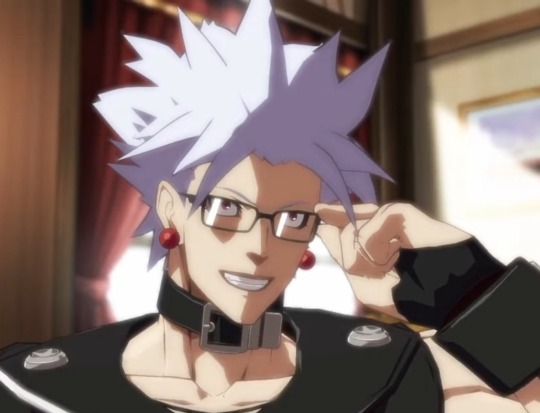
no lube, no protection, all nignt, all day, from the kitchen floor to the toilet seat, from the dining table to the bedroom, from the bathroom sink to the shower, from the front porch to the balcony, vertically, horizontally, quadratic, exponential, logarithmic, while I gasp for air, scream and see the light, missionary, cowgirl, reverse cowgirl, doggy, backwards, sideways, upside down, on the floor, in the bed, on the couch, on a chair, being carried against the wall, outside, in a train, on a plane, in the car, on a motorcycle, the the bed of a truck, on a trampoline, in a bounce house, in the pool, bent over, in the basement, against the window, have the most toe curling, back arching, leg shaking, dick throbbing, fist clenching, ear ringing, mouth drooling, ass clenching, nose sniffling, eye watering, eye rolling, hip thrusting, earthquaking, sheet gripping, pulling, teeth jitterbug, mind blogging, soul snatching, overstimulating, vile, sloppy, moan inducing, heart wrenching, spine tingling, back breaking, atrocious, gushy, creamy, beastly, lip biting, gravity defying, nail biting, sweaty, feet kicking, mind blowing, body shivering, orgasmic, bone breaking, world ending, black hole creating, universe destroying, devious, scrumptious, amazing, delightful, delectable, unbelievable, body numbing, bark worthy, can't walk, head nodding, soul evaporating, volcano erupting, sweat rolling, voice cracking, trembling, sheets soaked, hair drenched, flabbergasting, lip locking, skin peeling, eyelash removing, eye widening, pussy popping, nail scratching, back cuts, spectacular, brain cell desolving, hair ripping, show stopping, magnificent, unique, extraordinary, slendid, phenomenal, mouth foaming, heavenly, he could give me a nuclear bomb inside and I would still ride it i wanna squirt and cum on his face, ride it like jesus on a donkey. I will be screaming!!! i will be moaning !!!! i want him to penetrate my vaginal walls, like an invading army. Like the Jews in Jericho, helped by the grace of God. I want him inside of me. His sweet voice. I want to feel the vibration of his voice inside me, I want to feel his breath filling my womb. I want him to plug me with his fingers like a dirty plug and hold it, keeping the carbon dioxide inside. He will enter me with such force that I will burst, and all the gas will come out with incredible force, stretching me even more. I will breathe only his breath, without leaving my lips, I will take all his liquid that he will allow me to take. Each of his sperm will remain in me, I will be his incubator, uterus, doll. I will continue to moan even if he rips my throat out and breaks all my bones. My legs will always be spread, waiting for his body. Every night I draw a pentagram with his name and lie down in the center to call him with my sounds. Every night I touch myself, imagining him cutting off each of my fingers to make a necklace for his neck. So that I can always be there. And always touch him. We will always be together. Make me squirt, make me moan, make me groan. I want to carry his seed- his very essence- inside of me. I want to walk into walmart, knowing that i only hold him inside of me. I want to feel it slosh around my uterus as i buy cereal. and whilst i look for Cheerios, I want to feel his honey nut inside of me. Rolling, pulling my hair, slapping myself, barking, dressing up as a maid, acting like a animal, jumping, screaming, kicking my feetbeautiful amazing spectacular showstopping wonderful awesome talented magnificent Incredible totally unique never been done before jaw dropping majestic splendid heavenly gorgeous stunning fabulous perfect brilliant never the same excellent extraordinary phenomenal breathtaking foams mouth\* GRRRR snarl\* BITE BITE MUNCHSJFHJSGRRRRRR BARK BARK WOOF WOOF WOOF GR TNGFMR BARK BARL BARK WOOF OW0000 HOWL WITH ME Ow0000000000 BARK BARK GRRR....sniffs BARK GGRRR BARK BARK WOOF GGGGRRR GRR BARKNFKFLH FMSMANBARK WOOF WOOF GR TNGFMR BARK BARL BARK BARK WOOF WOOF WOOF GGRRRRBARRKKFNBFB GRR WOMGMHMBOF
18 notes
·
View notes
Text
Outstanding interview with Walter Mosley, a brilliant Black American writer who is also Jewish
The Curious Case of Walter Mosley
Mosley is the author of dozens of mystery and science fiction novels featuring Black heroes. His most famous novel is “Devil in a Blue Dress,” which features the hard-boiled, tough-as-nails private eye Easy Rawlins, portrayed by Denzel Washington in a terrific 1995 movie based on the novel.
I was astonished when this 2010 interview appeared in Moment, a Jewish magazine, and I learned that Mosley is also Jewish. He’s the son of a white, Jewish mother whose family fled Eastern Europe to the U.S. and a Black father who migrated from Louisiana to Los Angeles after World War II. Mosley identifies as both Jewish and Black.
Johanna Neuman:
I ask Mosley if he feels Jewish. “Sure,” he says. I ask him what it means to him to be Jewish. “In a way, to be a Jew is to be a part of a tribe,” he says. “Being a part of a tribe, you can never really escape your identity. You can be anything inside, but in the end you’re always answerable to your blood.” I ask if it’s harder to be black or Jewish in America and he pauses, eyes twinkling as he ponders the question, though he has no doubt heard it often before.
“People say to me, ‘Well, Walter, you’re both black and white.’ And I go, ‘No, I’m black, and I’m Jewish. Jews are not white people.’
I don’t know whether I agreed with this assessment of Jewishness when I first read this interview in 2010, but I agree with it now.
I am Jewish. I’m not observant. I don’t keep kosher. I haven’t set foot in a synagogue in decades. I have celebrated a lot of Christmases. I don’t look or act Jewish. I expect nearly everyone I encounter in life assumes I am not Jewish. And I’m an upper-middle-class American in the professional-managerial class. All of that makes me privileged.
And yet I am not white. I am something else. I am Jewish. I am heir to 5,000 years of history, much of which — the most recent couple of millennia — is not shared by the mainstream, Christian, Western European culture. It’s a history rich in poetry, creativity, intellectual achievements, loyalty, culture, and sheer tenacity at survival. In America, we have been made welcome as we have at no other place and time anywhere in the history of the world.
And yet to be Jewish means that all of your privileges can be taken from you in a moment. There are a lot of people in the world who hate you for your Jewishness. In America, there are a lot of people who believe Jews aren’t Americans. They think we are here on their forbearance. The current occupant of the White House and his Republican enablers are among those people, for all that they give lip service to opposing anti-Semitism.
It is Mosley’s conviction that like blacks, Jews are a race. He has called Jews “the Negroes of Europe,” noting that even in America, Jews have long been shut out of some country clubs, professions and universities, not because their religion is different but because they are. Having adapted to their surroundings, he believes, Jews may seem white, because white is the color of privilege. “One of the survival techniques of Jewish culture is to blend in to the society that you live in,” he says. “If you can speak the language and do the business and wear the clothes and join the clubs, it’s easier.” I ask if Judaism is not more of a religion than a race. “Some people can be incredibly religious and that will trump the notion of race.” But he adds with a knowing laugh, “there are very few Jews who are religious.”
Yup. Blending in. I spent a lot of energy as a boy and young man learning to do that. After that it became my nature.
Also:
I ask Mosley if he would ever write a novel with a central Jewish character. “Not if he wasn’t black,” he replies. I lift an eyebrow. “Hardly anybody in America has written about black male heroes,” he explains. “There are black male protagonists and black male supporting characters, but nobody else writes about black male heroes.” Mosley’s self-appointed job is to show these black heroes righting wrongs and protecting people, all in the name of justice, just like their white predecessors and contemporaries.
And:
In recent months, there has been a resurgence of interest in Mosley as a Jewish writer, sparked largely by Harold Heft, a former literature professor who contributed to a 1997 compendium on contemporary Jewish American novelists and noticed that Mosley had been excluded. In “Easy Call,” an article for the Jewish online magazine_ Tablet_ published in April, Heft made the case for Mosley’s inclusion in the Jewish-American literary canon, arguing that there is “a profoundly Jewish dimension” in his work. “What is a Jewish writer, and what is a Jewish theme?” Heft asked. “If a writer is unambiguously Jewish, doesn’t it follow that any story he or she commits to paper contains, by definition, Jewish themes, whether that story involves bubbe telling shtetl folktales over a steaming pot of chicken soup, or a black detective in Los Angeles living in the 1950s?”
…
To Mosley, the debate over whether he is or is not a Jewish author comes as no surprise. “It doesn’t bother me because I understand,” he told Heft last year. “You have Jewish thinkers who wouldn’t include me, because they see Jews in America as white people.”
Fifteen years ago, during Obama’s first term, when this interview was published, there was a great deal of discussion whether we’d entered into a “post-racial society.” Mosley then rejected that belief, and in retrospect he was dead right.
…he bristles at the suggestion that American society has entered into a post-racial period and has matured beyond the evil legacies of slavery and segregation. “He is distrustful of the idea that we’ve moved on,” says Derek Maus. “He understands the raisin in the batter metaphor. No matter how much you stir, you cannot assimilate the raisin into the batter.” Mosley clings proudly to the role of outsider, a view that derives as much from class as color. “I doubt he will ever write about somebody of privilege as a hero figure,” says Maus. Rarely are Mosley’s Jewish characters assimilated or wealthy. “He identifies with European Jews, with camp survivors. There is this linkage to old European Jewishness.”
Mosley has a sensible answer to the question of who has been discriminated against more, Blacks or Jews. Which was worse: Slavery or the Holocaust?
“Comparing holocausts doesn’t seem a plausible thing to me,” he says. “You look at women in the Congo today and you say, ‘I don’t know what’s harder, being black or being Jewish, but I’ll take either one as long as I don’t have to be a woman in the Congo.'”
2 notes
·
View notes
Text
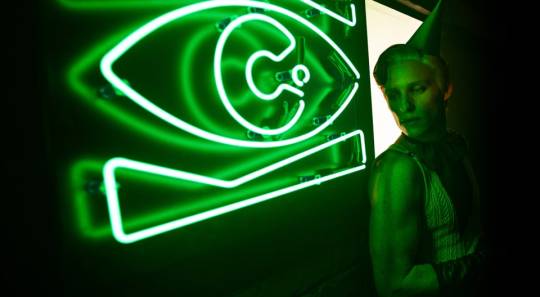
📷 Eddie Redmayne backstage during the London production.MASON POOLE.
The Untold History of Cabaret: Revived and Kicking.
As Broadway welcomes the ever-evolving musical, its star, Eddie Redmayne—along with Liza Minnelli, Joel Grey, and Sam Mendes—assess its enduring power.
Variety Fair, March 26th, 2024.
Excerpts:
"The revival of Cabaret—starring Eddie Redmayne as the creepy yet seductive Emcee; Gayle Rankin as the gin-swilling nightclub singer Sally Bowles; and Bebe Neuwirth as Fraulein Schneider, a landlady struggling to scrape by—opens April 21 at Manhattan’s August Wilson Theatre. It will do so in the shadow of a pogrom not seen since the Einsatzgruppen slaughtered thousands of Jews in Eastern Europe and in the shadow of a war between Israel and Hamas that continues into its fifth month, with the killing of thousands of civilians in Gaza. Nearly 60 years after its debut, Cabaret still stings. That is its brilliance. And its tragedy".
"Redmayne has been haunted by Cabaret ever since he played the Emcee in prep school. “I was staggered by the character,” he says. “The lack of definition of it, the enigma of it.” He played the part again during his first year at Cambridge at the Edinburgh Fringe Festival, where nearly 3,500 shoestring productions jostle for attention each. summer. Cabaret, performed in a tiny venue that “stank,” Redmayne recalls, did well enough that the producers added an extra show. He was leering at the Kit Kat Klub girls from 8 p.m. till 10 p.m. and then from 11 p.m. till two in the morning. “You’d wake up at midday. You barely see sunshine. I just became this gaunt, skeletal figure.” His parents came to see him and said, “You need vitamin D!”
In 2021, Redmayne, by then an Oscar winner for The Theory of Everything and a Tony winner for Red, was playing the Emcee again, this time in Frecknall’s West End production. His dressing room on opening night was full of flowers. There was one bouquet with a card he did not have a chance to open until intermission. It was from Joel Grey, who originated the role on Broadway and won an Oscar for his performance alongside Liza Minnelli in the 1972 movie. He welcomed the young actor “to the family,” Redmayne says. “It was an extraordinary moment for me.”
"Rebecca Frecknall (director) grew up on Mendes’s Donmar Warehouse production of Cabaret. The BBC filmed it, and when it aired, her father videotaped it. She watched it “religiously.” But when she came to direct her production, she had to put Mendes’s version out of her mind.
Mendes turned his little theater into a nightclub. Frecknall, working with the brilliant set and costume designer Tom Scutt, has upped the game. They have transformed the entire theater into a Weimar cabaret. You stand in line at the stage door, waiting, you hope, to be let in. Once inside, you’re served drinks while the Kit Kat Klub girls dance and flirt with you. The show’s logo is a geometric eye. Scutt sprinkles the motif throughout his sets and costumes. “It’s all part of the voyeurism,” Scutt explains. “The sense of always being watched, always watching—responsibility, culpability, implication, blame. Mendes’s Cabaret, like Fosse’s, had a black-and-white aesthetic—black fishnet stockings, black leather coats, a white face for the Emcee. Frecknall and Scutt begin their show with bright colors, which slowly fade to gray as the walls close in on the characters. “Color and individuality—to grayness and homogeneity,” Frecknall says.
As the first woman to direct a major production of Cabaret, Frecknall has focused attention on the Kit Kat Klub girls—Rosie, Fritzie, Frenchie, Lulu, and Texas. “Often what I’ve seen in other productions is this homogenized group of pretty, white, skinny girls in their underwear,” she insists. Her Kit Kat Klub girls are multiethnic. Some are transgender. Through performances and costumes, they are no longer appendages of the Emcee but vivid characters in their own right.
Her boldest stroke has been to reinvent the Emcee. She and Redmayne have turned him into a force of malevolence. He is still sexy and seductive, but as the show goes on, he becomes a skeletal puppet master manipulating the other characters to, in many cases, their doom. If Cumming’s Emcee was, in the end, a Holocaust victim, Redmayne’s is, in Frecknall’s words, “a perpetrator.”
Read more:
8 notes
·
View notes
Text
I still can't believe Spielberg didn't rush the stage to slap Jonathan Glazer after that speech, especially after he heaped praise on The Zone of Interest as the best movie made about the Holocaust since Schindler's List.
Spielberg is wrong, of course, Son of Saul was made in the interim, and is a masterpiece (Geza Rohrig is my forever Oscar snub). But The Zone of Interest is a brilliant film, casting a cold eye on Rudolf Hoss and his wife as they go about their daily lives in the shadow of Auschwitz. It would seem to be a story about the banality of evil, par excellence.
But there's two things to dissect here:
1) there's a tangled legacy with the banality of evil; it's a good phrase, it explains or excuses a lot of savagery, anyone can be swept up if they find themselves in the wrong historical moment. Except people have been criticizing Arendt for coining it from the moment she wrote Eichmann in Jerusalem. Eichmann wasn't some bureaucrat who went along with the machine; he was obsessed with Jews, studied them, he organized the deportation of the Hungarian Jews near the end of the war, almost 450,000 of them, 12,000 a day, and even arranged his own trains when he was told to stop.
2) Hoss, of course, was the man who was on the receiving end of this; The Zone of Interest ends at the moment of his reassignment back to Auschwitz to deal with the mass influx of of Jews. Hoss also wasn't some abstract figure who lived next to the camps. He was an unrepentant Nazi from the earliest days of the party, and honed his cruelty in Dachau and Sachsenhausen until he turned Auschwitz into the most effective extermination machine the world has known.
If audiences feel incriminated by The Zone of Interest, that's on them. This was a crime against Jews, executed by a society that hated Jews, and overseen by officials who embraced the chance to wipe them out in the most efficient and organized way possible. The Holocaust isn't a lesson, isn't a yardstick of your morality, isn't a rhetorical device, isn't a scenario where you play 'what I would have done.' It isn't the beginning or end of antisemitism, or the beginning or end of Jewish history.
If Glazer feels guilty as a Jew, there's not much I can do about that. But how can he not feel the same sock to the gut I do when The Zone of Interest finally flashes to the present to show exactly the extent to which Hoss dedicated himself to the eradication of our people?
#and now thank goodness awards season is over#like I said#Tonys were good for the Jews#Oscars were not#at least we can be done with people thinking complaining about Bradley Cooper's nose is their great stand against antisemitism#The Zone of Interest#a nice jewish tag
15 notes
·
View notes
Photo
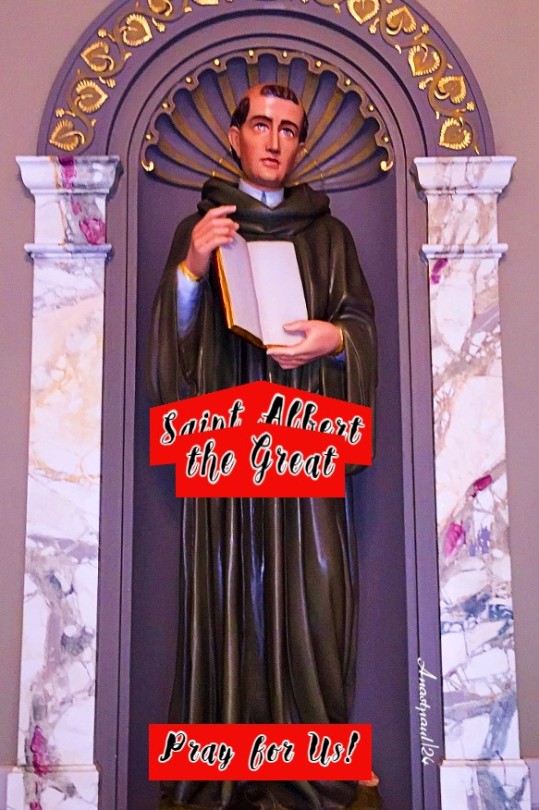
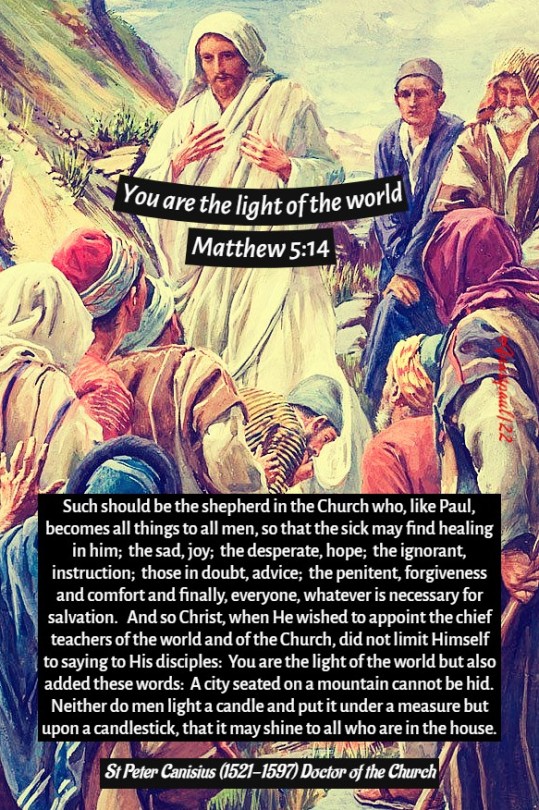
One Minute Reflection – 15 November – “The Month of the Holy Souls in Purgatory” – St Albert the Great OP (1200-1280) Bishop, Confessor, Doctor of the Church – 2 Timothy 4:1-8; Matthew 5:13-19 – Scripture search here: https://www.drbo.org/ “You are the light of the world.” – Matthew 5:14
REFLECTION – “I shall always love and reverence the Apostles sent by Christ and their successors, in sowing the seed of the Gospel, those zealous and tireless co-operators in propagating the Word, who may justly say of themselves: Let a man so account of us as the ministers of Christ and the dispensers of the Mysteries of God. For Christ, like a most watchful and most faithful householder, wished that the Gospel lamp should be lit by such ministers and delegates, with fire sent down from Heaven and once lit, should not be put under a measure but set upon a candlestick, so that it may spread its brightness far and wide and put to flight, all darkness and error, rife among both Jews and Gentiles. Now it is not enough for the Gospel teacher to be a brilliant speaker in the eyes of the people; he must also be as a voice crying in the desert and endeavour, by his eloquence, to help many to lead good lives, lest, if he omit his duty of speaking, he be called the dumb dog that is not able to bark, spoken of by the prophet. Yes, he should also burn, in such a way, that, equipped with good works and love, he may adorn his evangelical office and follow the leadership of Paul. He indeed was not satisfied with bidding the Bishop of the Ephesians: This command and teach: conduct thyself in work as a good soldier of Christ Jesus but he unflaggingly preached the Gospel to friend and foe alike and, said with a good conscience to the Bishops gathered at Ephesus: You know how I have kept back nothing that was for your good but have declared it to you and taught you in public and from house to house, urging Jews and Gentiles to turn to God in repentance and to believe in our Lord Jesus Christ. Such should be the shepherd in the Church who, like Paul, becomes all things to all men, so that the sick may find healing in him; the sad, joy; the desperate, hope; the ignorant, instruction; those in doubt, advice; the penitent, forgiveness and comfort and finally, everyone, whatever is necessary for salvation. And so Christ, when He wished to appoint the chief teachers of the world and of the Church, did not limit Himself to saying to His disciples: You are the light of the world but also added these words: A city seated on a mountain cannot be hid. Neither do men light a candle and put it under a measure but upon a candlestick, that it may shine to all who are in the house. Those churchmen err, who imagine that it is by brilliant preaching, rather than by holiness of life and all-embracing love, they fulfil their office.” – St Peter Canisius SJ (1521-1597) Doctor of the Church (Sermon excerpt).
(via One Minute Reflection – 15 November – “You are the light of the world.” – Matthew 5:14 – AnaStpaul)
2 notes
·
View notes
Text
(JTA) — This past week we entered the Hebrew month of Kislev, the month here in the Northern Hemisphere when we often experience the longest, darkest nights of the year. As the light contracts each day, I experience a tightening in my gut, an anxious fluttering of the heart. Time feels compressed, as if there aren’t enough hours in a day to do everything that needs doing. When the light fades at the end of these foreshortened days, I draw the blinds and turn on the lamps, wanting to make my home into an island of warmth and light in the face of the encroaching darkness.
My trepidation at the onset of night echoes the primal fear of the dark ascribed to the first mythic humans, Adam and Eve. A talmudic tale, found in Avodah Zarah 8a, imagines the two of them becoming frantic as darkness falls at the close of the first day of their lives. They’ve disobeyed God by eating from the Tree of the Knowledge of Good and Evil and now they’re terror stricken. “Woe is me,” Adam wails, “that because I’ve sinned, the world is darkening around me! The world will return to chaos and emptiness; this is heaven’s death sentence upon me!”
In this midrash, Adam experiences the arrival of darkness as punishment. His words conjure up the kind of existential shudder that can overtake a person in the dark, as the familiar shapes and colors of the daytime world dissolve into the trackless night. No wonder that darkness is often a metaphor for the scariest of times, times like the present, when awash in grief, fear and anger, we bear witness to the atrocities of war, to hatred unleashed and suffering magnified, to shattered dreams and dampened hopes. “These are dark times,” we tell one another.
Perhaps it’s only natural that humans try to beat back the dark with our hearths, campfires and brilliant winter light displays. We Jews do this beginning on the 25th of Kislev, when we kindle Hanukkah candles in remembrance of the Hasmoneans’ military victory over the Seleucid Greeks and the rededication of the Jerusalem Temple. But on a more primal level, we do this to remind ourselves that even a tiny flame instantly dispels the deepest dark, offering hope, a light at the end of the tunnel.
And yet it strikes me that many of our tradition’s most transformational and transcendent moments unfold in the dark, in a dream space rich with spiritual potency. In Toldot, this week’s Torah portion, for instance, we meet Jacob, whose journey toward self-realization is bookended by two stirring night episodes. Fleeing from his wrathful brother, he has a prophetic dream in which angels ascend and descend a ladder stretching between heaven and earth while God looms over him, promising protection. Returning home some 20 years later, he engages in an all-night wrestling match with a mysterious being, perhaps his own shadow self, who ultimately blesses him as the dawn breaks, renaming him Israel, the one who strives with God and prevails.
Despite the anguish that darkness evokes, the dark times offer unique opportunities. They slow us down, inviting us to rest in the moment. Sometimes they force us to face painful truths. They challenge us to deepen our prayer life, strengthen our faith and resolve, and discover inner resources and possibilities for transformation we might not know we possess.
Years ago, I practiced walking in the woods at night without a flashlight and discovered that when I could breathe deeply and relax into the darkness, over time my eyes would adjust and I could see much more than I thought possible. Not just my eyes, but my whole body began to see in the dark in ways that I couldn’t in the light of day. I could find my way.
Adam and Eve, so the story goes, sat across from one another on that first traumatic night, fasting and weeping. When the dawn finally broke, they realized that the freshly created world was not coming to an end and that the alternation of light and dark, day and night, was simply the way of the world. Had they not felt so guilty and terrified they might have been able to look around with curiosity as the light waned, noticing how their eyes were primed to pick up many subtle shades of gray, the palette of darkness. Their vision might have gradually adjusted to the dark and, in the subtle glow of starlight, they might have been able to pick out the familiar, reassuring features of the other’s face and been calmed and comforted, even in the midst of their distress.
Could it be that in our yearning for the resurgence of the light, we fail to recognize and fully receive the gifts of darkness? That in drawing my blinds against the terrors of the night, I also shut out the vastness of the cosmos, the glimmering pinpoints of distant stars, the radiant winter moon, and the intimate, enveloping quiet of the dark?
8 notes
·
View notes
Text
Thoughts on Oliver Twist
The fact that Charles Dickens starts off his book basically like: "Our story starts off in a town but not one that exists in real life, but I am also not making one up" is somehow both brilliant and kinda annoying at the same time
Oliver's good spirit that had plenty of room to grow because of the fact the establishment refused to feed the orphans. That is depressing.
Mr. Bumble is efficient with his naming process. He has all the remaining letters and all the way through again once he gets to Z
Oliver makes me want to cry when he cries, he's just a little kid
The fact that they just took people away from their families instead of encouraging them to support their family is insane
Mr. Gamfield has "the slight imputation of having brushed three or four boys to death already"... thank goodness they didn't send Oliver with him
I did tell my friends that the "please sir, I want some more" came from this
I get that they're orphans, so they are outcasts but are threatening death over food necessary???
Everyone is so mean to Oliver for no reason :(
There is something particularly gross and horrifying when the undertaker, Mr. Sowerberry proposes to make Oliver a "mute" (someone who goes to funerals and cries) specifically for other children's funerals.
Dickens calling himself Oliver's biographer and using the first person as if he's actually telling the story to us is always something that makes me happy in his books. I like it when he speaks personally of his characters like he knows them
"He'll murder me!" You insulted his dead mother. Can't blame Oliver on this one
He's not a murderer. He shook Noah a few times, but he's still alive and well, just sobbing with a black eye. It would definitely hurt, but he'll live
The fact that they blame Oliver's actions on meat and being overfed is so weird 😐. Oliver deserved to run away
Dick is so sweet despite being prepared to die from sickness
"The blessing was from a young childs lips, but it was the first that Oliver had ever heard invoked upon his head; and through the struggles and sufferings, and troubles and changes, of his after life, he never once forgot it" my heart
Fagin, Bates, and Dodger kinda treat Oliver better even when the pickpocket things throw it off. They probably should've warned him before he was caught as a "thief" or, not betrayed him
At least Fagin is upset over it, even when it backfires in Mr.Sike's face. They do bother planning to look for him by asking Nancy to. It's kinda selfish that they do it so he won't tell, but they are worried for their own survival as well
Mr. Brownlow and Mrs. Bedwin seems to be the only people who care for Oliver genuinely 100% of the time
Fagin is called "The Jew" more often than he is his actual name
Nancy talking about how she thieves for them for 12 years :(
Oliver keeps getting betrayed and left behind. He got shot, and they just left him!! Fortunately, someone always cones to find him, whether or not it's with good intentions kinda reignites the problems
Mr. Bumble gets married and is completely degraded by his wife's sharp wit in only 8 weeks.
Rose is an angel, no questions asked
SIKES JUST KILLED NANCY NOOOO
NOOO DICK DIED TOO 😭
Fagin is also dead for his compliance in the murder
Sikes dies in the most catastrophic way possible, fitting.
At least everyone else got the fates they deserved, good and bad :)
3 notes
·
View notes
Text
Vote for Hedy!!!
youtube
She was so incredibly gorgeous, and even nearly 30 years later she was just as beautiful:
youtube
Her voice is so soothing too
youtube
Her son Anthony described her as “such a creative person…non-stop solution finding. If you talked about a problem, she had a solution.”
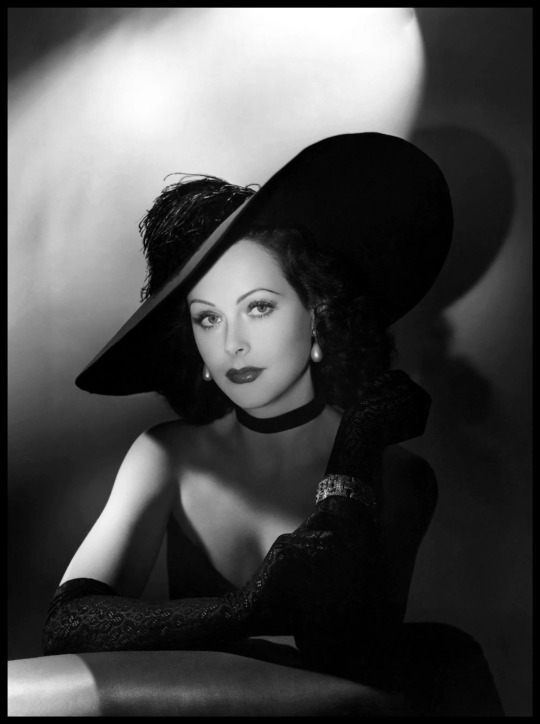

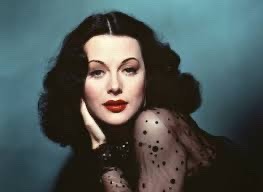
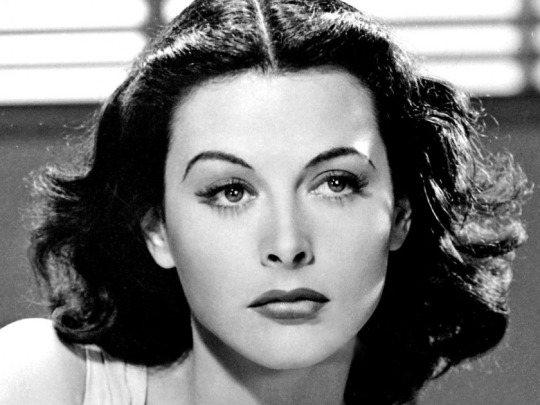
Just look at her! Her eyes, her cheekbones, her nose, her body. She was truly stunning in every sense of the word.
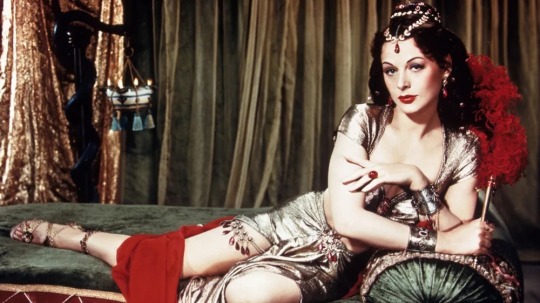
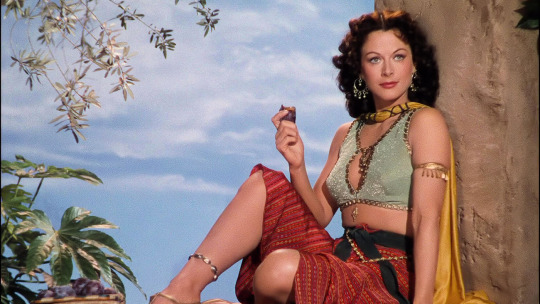
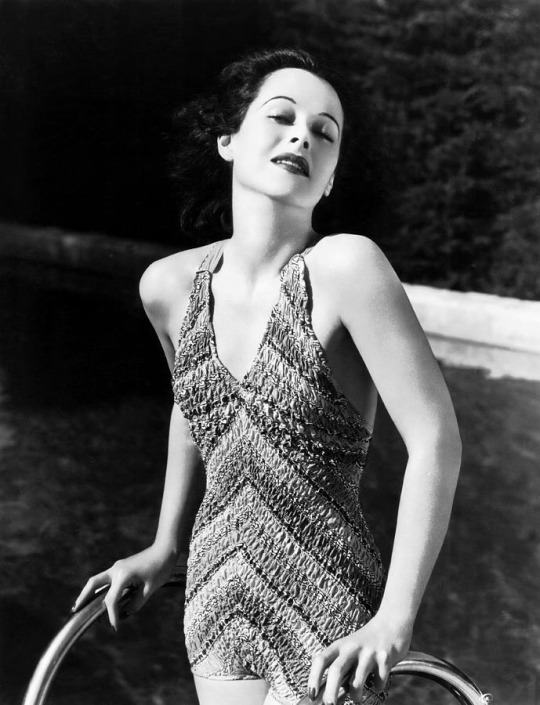
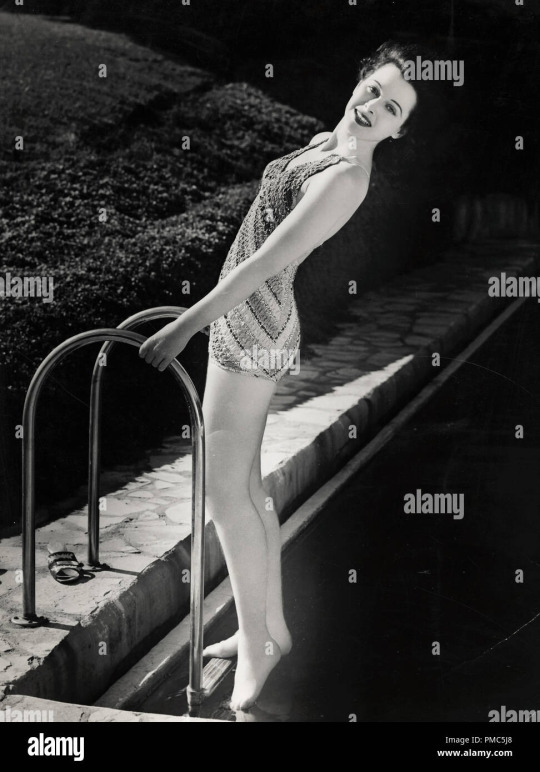
On top of all of that, she was a brilliant inventor while dealing with complex identity issues that many of us today are probably familiar with:
““She also had the same kind of complicated relationship with being a woman,” Dean said. “She wanted to be Louis B. Mayer, she wanted to be Cecil B. DeMille. She didn’t want to identify as a woman and she didn’t want to identify as a Jew.
“And what does that do to you? I think if you don’t understand her relationship with being Jewish you don’t understand why she was such a broken person.”
Lamarr’s Jewishness was directly related to her development of a system for ships to communicate that the Nazis couldn’t break, Dean said. Though the technology wasn’t used in World War II, an updated version helped Navy ships during the Cuban missile crisis in 1962. Lamarr’s invention later led to the development of GPS, Bluetooth, and Wi-Fi.
In Hollywood, the actress wasn’t allowed to be open about her identity because Mayer believed that audiences wouldn’t fantasize about a Jew. At the same time, the Nazis were blowing up ships in the Atlantic with European Jewish children.” (Source)
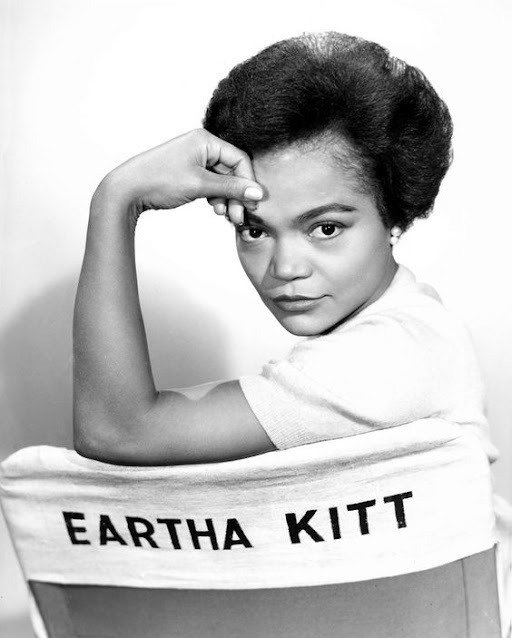
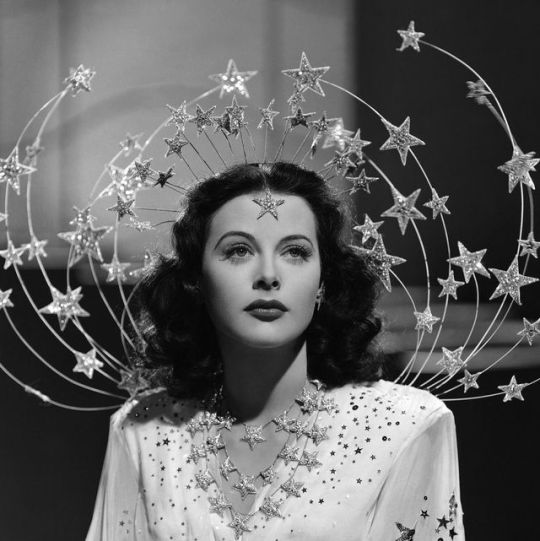
Propaganda
Eartha Kitt (Anna Lucasta, St. Louis Blues)—My friend and I have a saying: NOBODY is Eartha Kitt. A thousand have tried, and they've all come up empty and will continue to do so. Everyone knows her for something: from "Santa Baby" to Yzma in Emperor's New Groove to Catwoman to making Lady Bird Johnson cry for the Vietnam War. She was a master of comedy and sex, an extremely vocal activist, and she aged like fine wine... I honestly don't know what I can say about her that hasn't already been said, so I'll stick to linking all my propaganda. Like what else do you want from me. She was iconic at everything she ever did. Literally name another. How can anyone even think of her and not want to absolutely drown?
Hedy Lamarr (Samson and Delilah, Ziegfeld Girl)—Look. I'm sure someone has already submitted Hedy Lamarr because she was spectacularly beautiful, and a very strong lady too: she fled both an abusive marriage AND nazi persecution at a very young age and rebuilt a life for herself pursuing her love for acting all on her own!! Her career as an actress was stellar; while she began acting outside of Hollywood (her very first movie, Ecstasy, won a prize at the Venice Film Festival), she conquered American hearts very quickly with her first movie in the US, Algiers, and then just kept getting better and better. If all this isn't enough, she was also an inventor: her invention of the frequency-hopping spread spectrum radio transmission technique forms the base of bluetooth and has a lot of applications in all kinds of communication technologies. I think that deserves a prize, don't you?
This is the final poll of the Hot & Vintage Movie Women Tournament. Please reblog with further support of your beloved hot sexy vintage woman.
THIS POLL LASTS FOR 24 HOURS.
[additional propaganda submitted under the cut.]
Eartha Kitt:
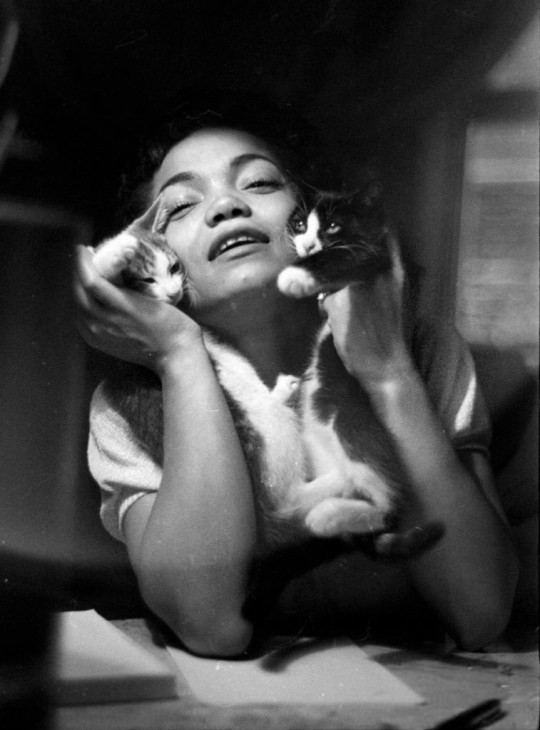
"A hot vintage woman who was not just known for her voice, beauty, poise, and presence, but also her unapologetic ways of speaking about how she was mistreated in the show business as a girl who grew up on cotton fields in South Carolina in the 1930s through the 1940s coming to Broadway first and then Hollywood."
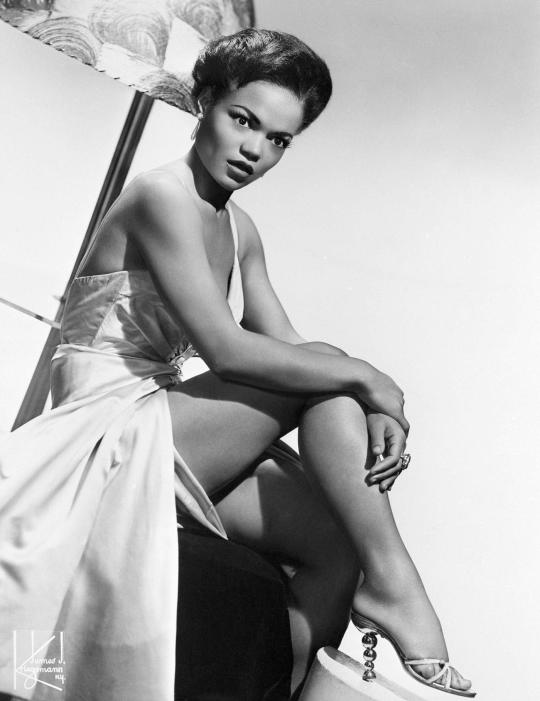
"Have you watched her sing?? Have you seen her face?? Have you heard her talk?? How could you not fall instantly in love. She makes me incoherent with how hot she is."
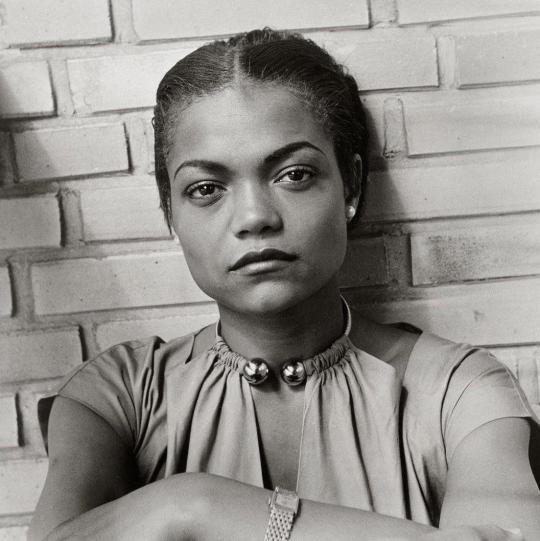
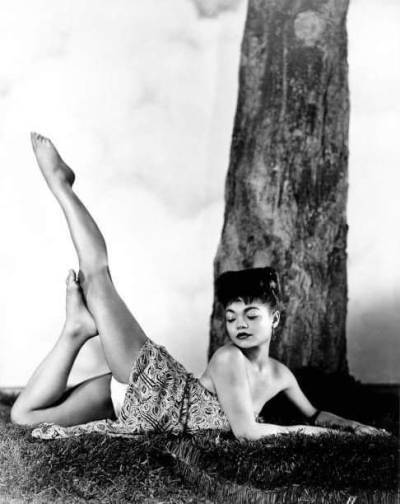
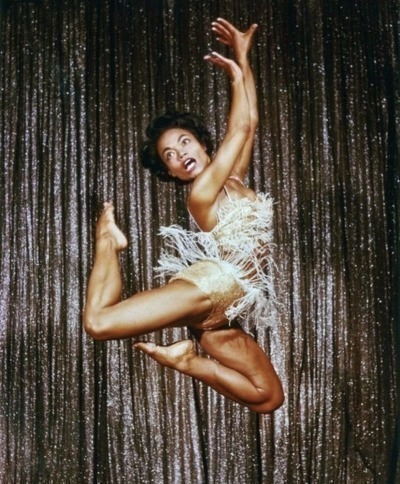
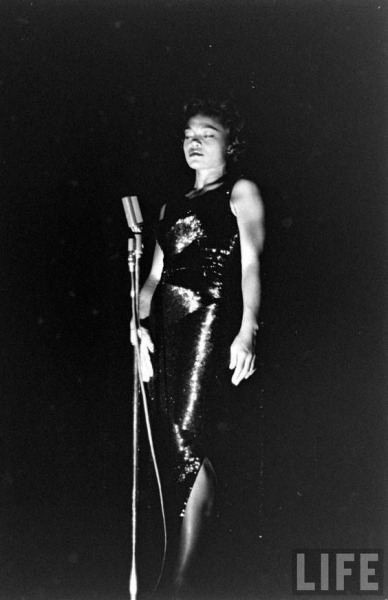
"She can ACT she can SING she can speak FOUR LANGUAGES she is a GODDESS!!! Although she is (rightfully) remembered for her singing, TV appearances (Catwoman my beloved), and later film roles, her early appearances in film are no less impressive or noteworthy!! She’s an amazing actress with so much charisma in every role. She was also blacklisted from Hollywood for 10 years for criticizing the Johnson administration/Vietnam War, so. Iconic. Also Orson Welles apparently called her “the most exciting woman in the world.”
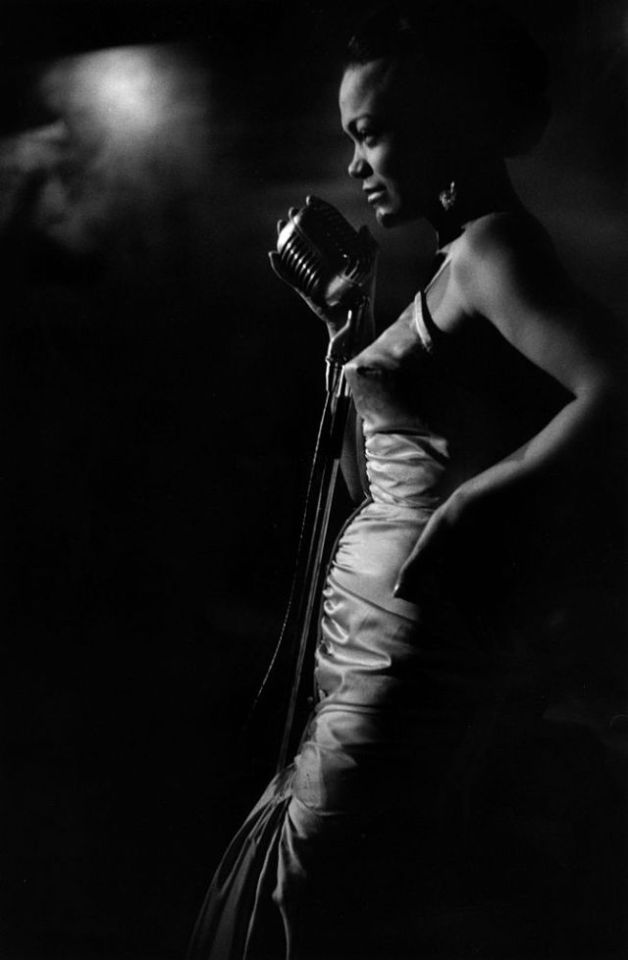
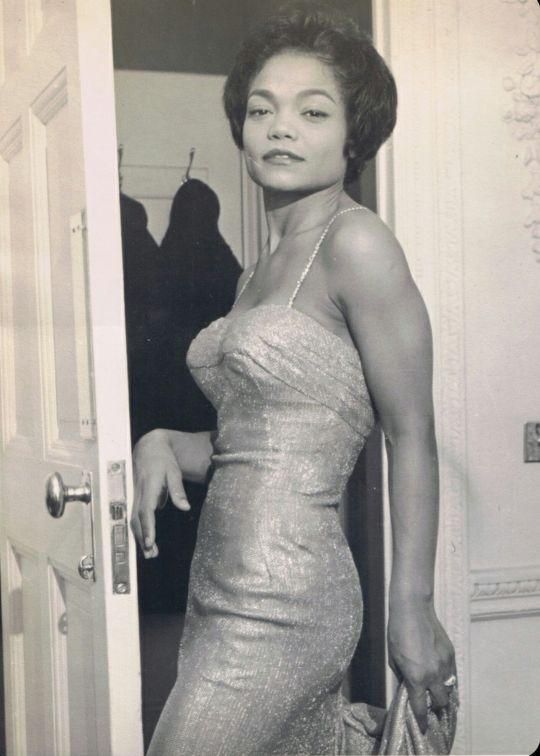
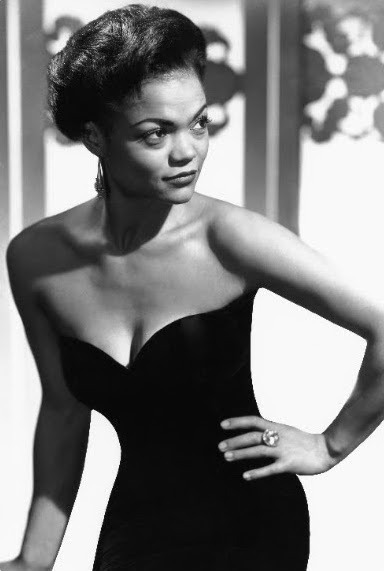
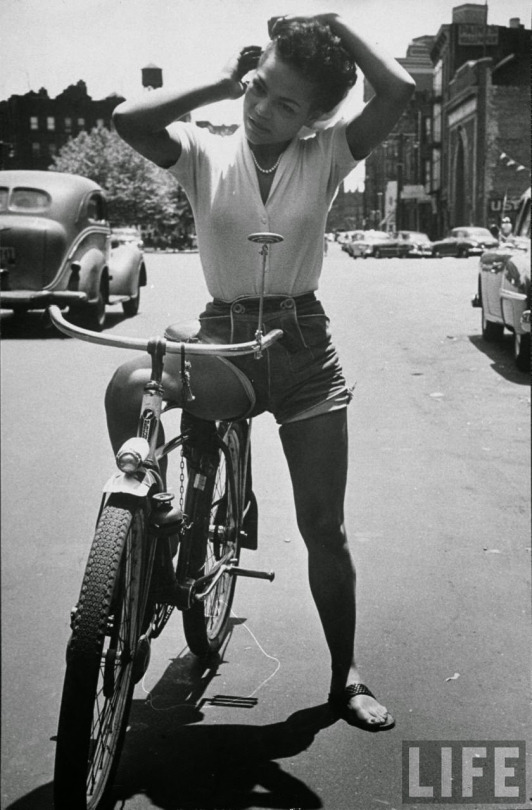
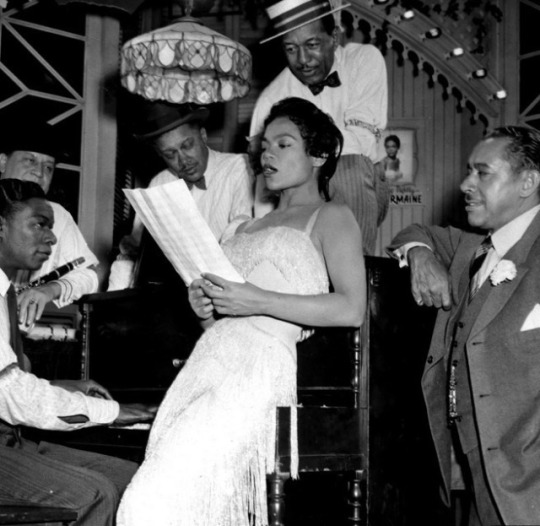
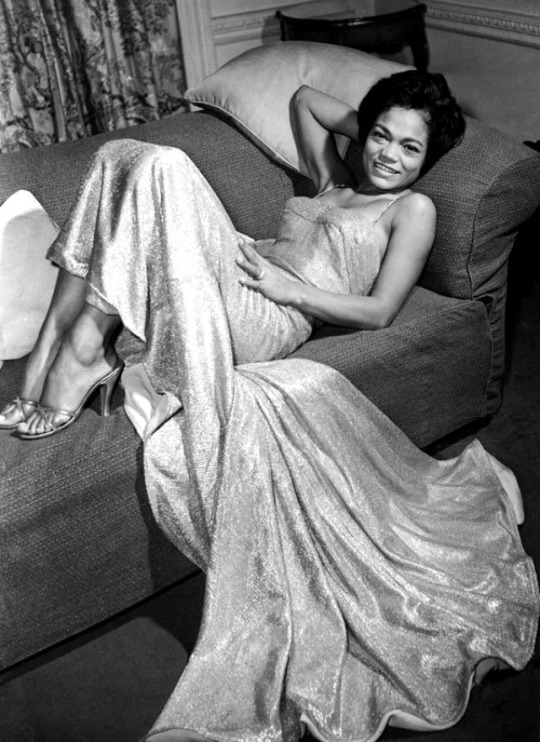
"She had such a stunning, remarkable appearance, like she could tear you to shreds with just a glance- but the most undeniable part of her hotness was her voice, and it makes sense that it's what most people nowadays know her for. Nothing encapsulates the sheer magnetism of her singing better than this clip of her and Nat King Cole in St. Louis Blues, she pops in at 2:49. Also I know it's post-1970 but her song that was cut from Emperor's New Groove is likely to make you feel Feelings."

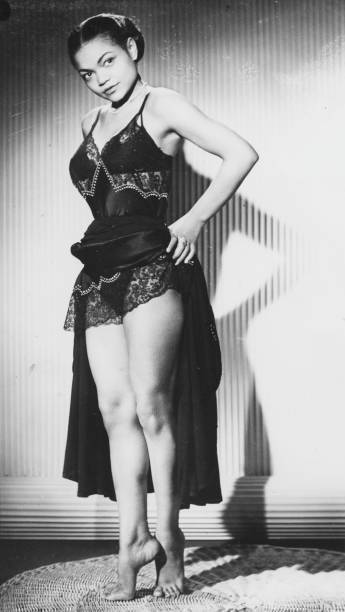
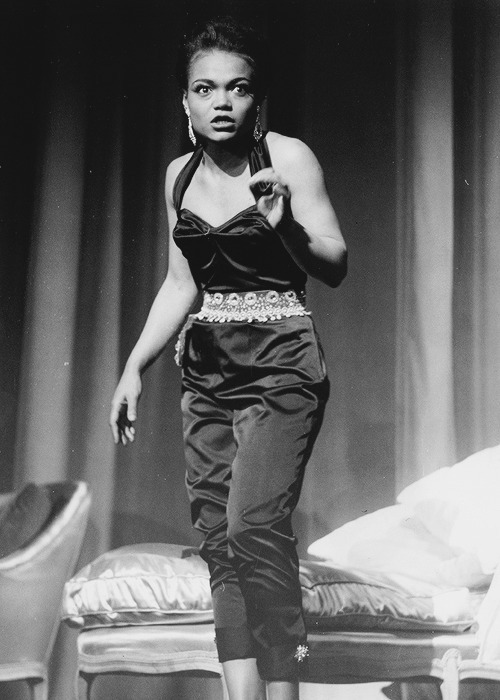
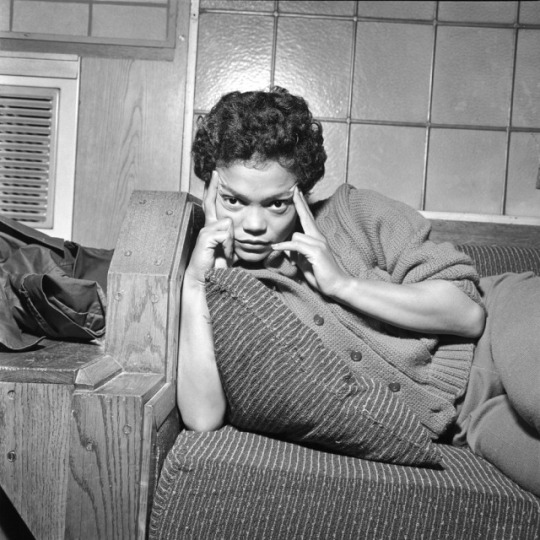
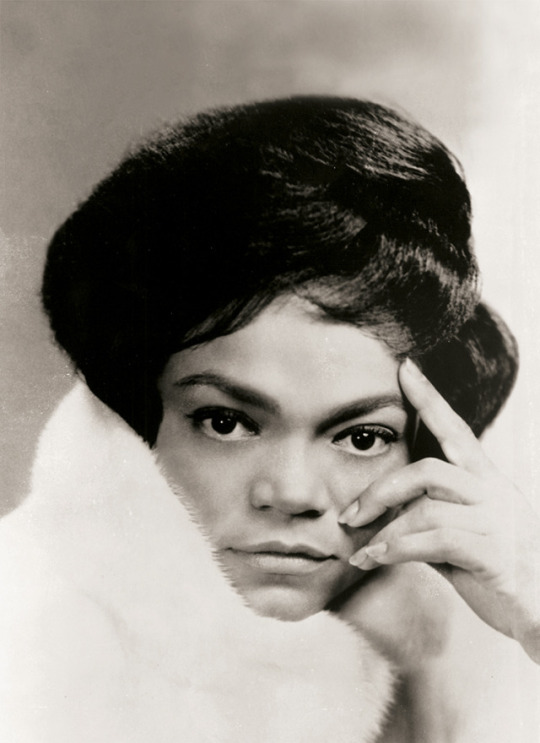
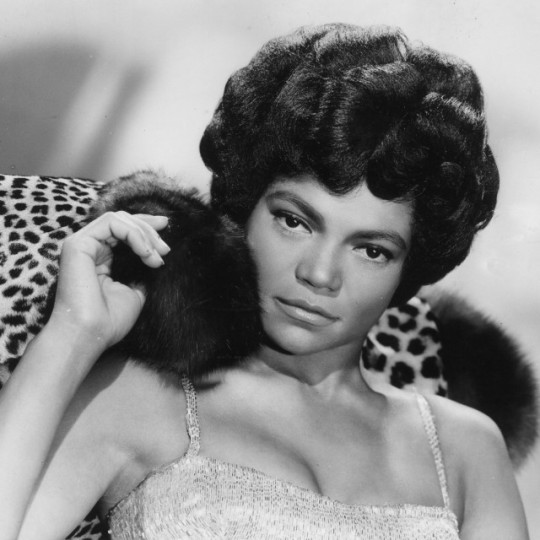
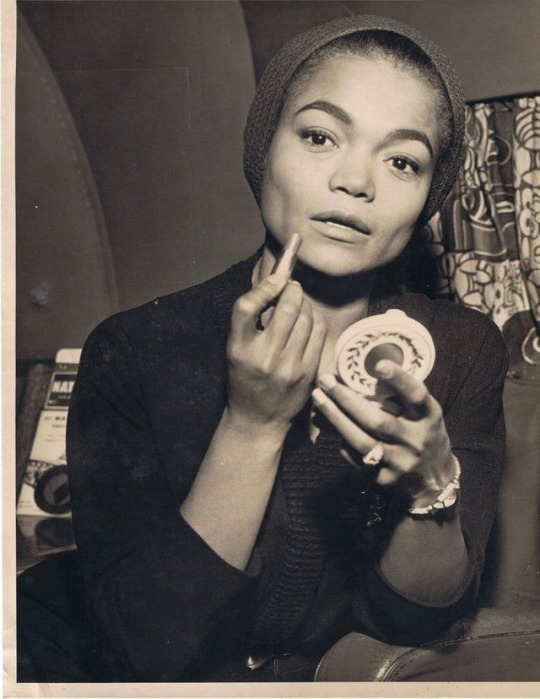
"Even with as racist as Hollywood was in the 1950s and 60s, Eartha Kitt STILL managed to have a thriving career. She also once had a threesome with Paul Newman and James Dean, and called out LBJ over the Vietnam War so hard that it made First Lady Johnson cry. Eartha Kitt was talented, sexy, and a total badass activist."
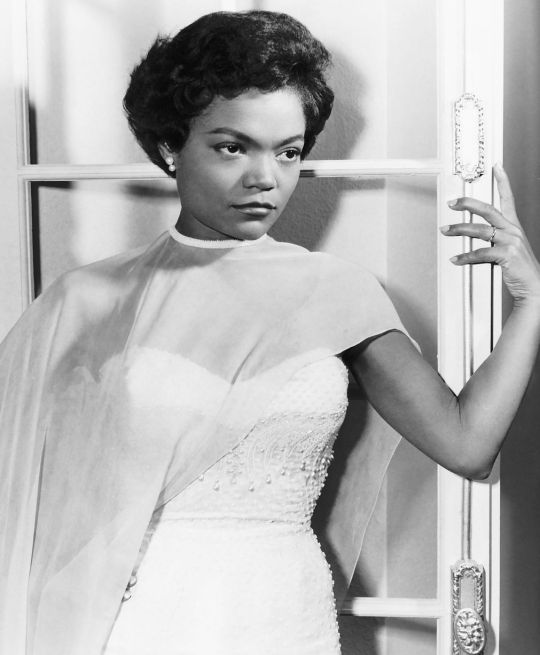
Hedy Lamarr:
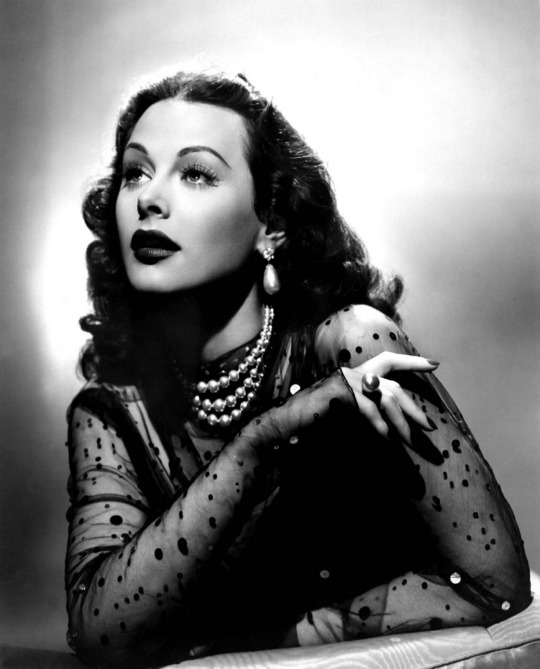
"The only person you can find both on the Hollywood Walk of Fame and in the Inventor's Hall of Fame--her radio-frequency-hopping technology forms the basis for cordless phones, wi-fi, and a dozen other aspects of modern life. She was also passionate in her efforts to aid the Allies in WWII (unsurprising for a Jewish-Austrian Emigree to America), and her name served as the backbone for one of the best running jokes in what is possibly Mel Brooks' best movie. Look, Louis B. Mayer apparently believed he could plausibly promote her as "The world's most beautiful woman". Is an entire website full of people going to be less audacious than one Louis B. Mayer? I didn't think so!"
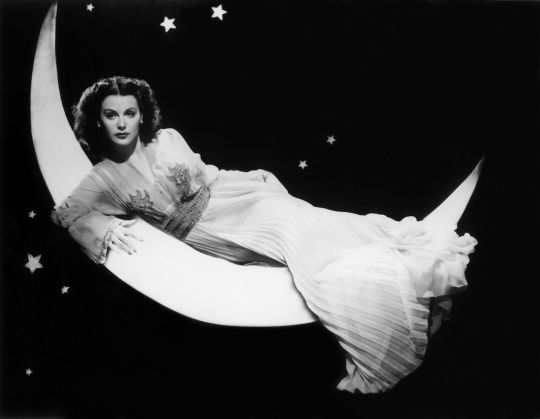
"Described as "Hedy has the most incredible personal sophistication. She knows the peculiarly European art of being womanly; she knows what men want in a beautiful woman, what attracts them, and she forces herself to be these things. She has magnetism with warmth, something that neither Dietrich nor Garbo has managed to achieve" by Howard Sharpe, she managed to escape her controlling husband (and Nazi Germany) by a) Disguising as her maid and fleeing to Paris or b) Convincing the husband to let her wear all of her jewelry to a dinner, only to disappear afterwards. Also she was particularly clever and helped develop Frequency-Hopping Spread Spectrum (I can't really explain it but anyway...)"
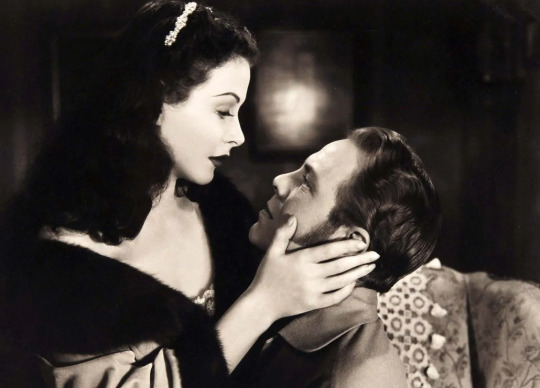
"Her depiction of Delilah and Samson and Delilah just lives rent free in my head. The woman was gorgeous."
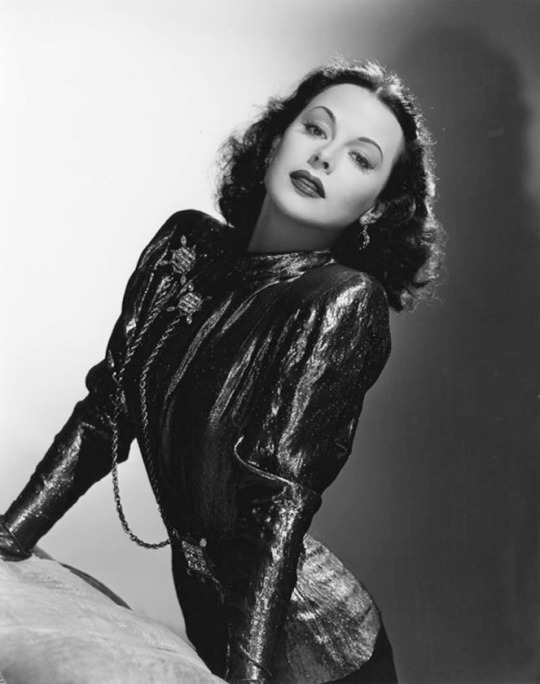
"One of the most beautiful women ever in film, spoken by many critics and fans. Beautiful shapely figure, deeper seductive voice, and often played femme fatale roles. She was also brilliant and an inventor. Mainly self-taught, she invested her spare time, including on set between takes, in designing and drafting inventions, which included an improved traffic stoplight and a tablet that would dissolve in water to create a flavored carbonated drink, and much more."
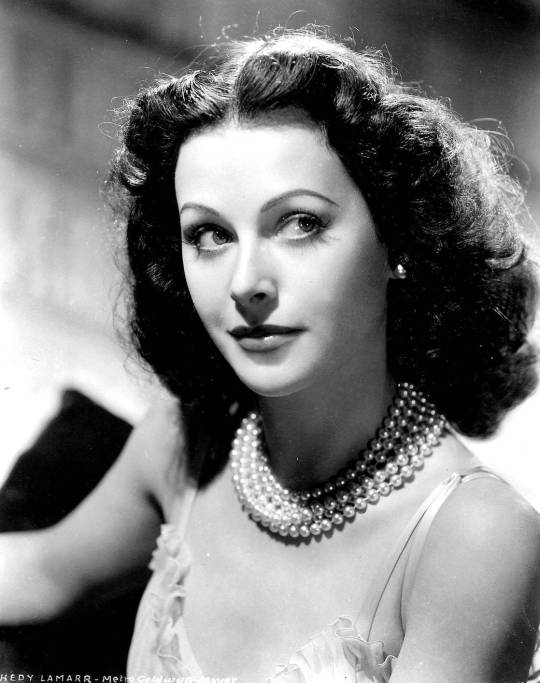
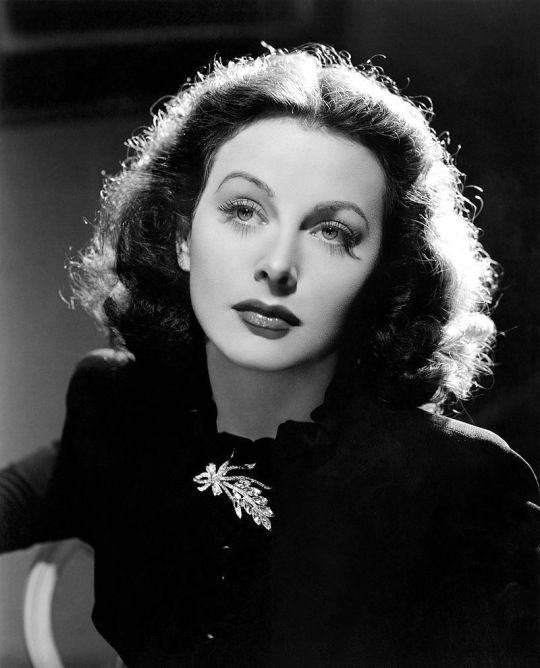
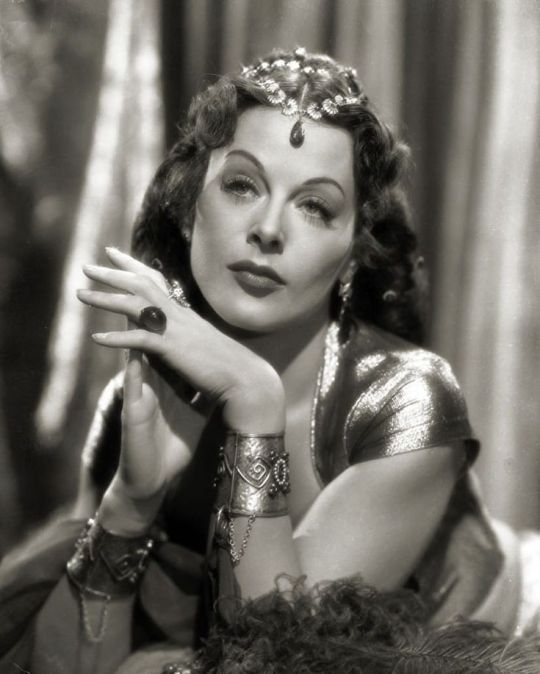
"Gorgeous and brilliant pioneer of modern technology and the middle part."
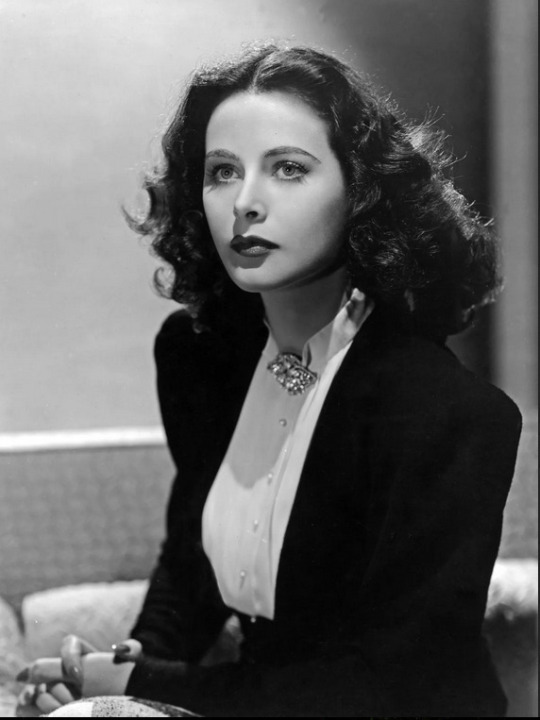
2K notes
·
View notes
Text
“Oh! yes, if he were going to do the thing, he believed in doing it well. No half measures in marriage. He would have her dress exquisitely”
“He had, then, a bare four weeks, during which his business, of course, could not be neglected, in which to sweep Rachel off her feet”
“it seemed to Rachel Dreyfus that she was always coming across that disagreeable Julius Lévy. It was quite surprising the way he seemed to turn up”
“hinting, in the most atrocious way, that she had walked that way on purpose with the hope of seeing him”
“He was interesting, though, Rachel had to admit that—and very amusing”
“he wasn’t very old; and then he had that way of looking at her that after all wasn’t really insulting but rather mysterious and sort of breathless”
“she supposed that the fact was he was clever and attractive”
“Julius—yes, first names by now, very unconventional and presumptuous of him”
“Julius looking at her across the table and smiling, and how she had smiled back”
“the books with French titles that arrived so often, his handwriting on the flyleaf, and which she read in bed at night”
“Perhaps, then, she admitted, there was something secretive in their friendship, because neither of them mentioned these things”
“at three in the morning he was imagining something about her that he left her to guess—did she feel it and did it wake her up?”
“Rachel, I wish you wouldn’t wear that red dress; I can’t concentrate on food or wine or the conversation”
“she hummed the bars of the new song she was learning—a French song—all her latest songs were French”
“her eyes anywhere but on her music and her thoughts lost in some fancy, and then the door opened and Mr. Lévy was announced”
“she felt that it must be obvious in her face that she had been thinking about him”
“will you pretend that it was arranged on the 7th, only we kept it secret? That’s easy enough. I’m damned if I’m going to lose that bet.”
“Julius had asked her to marry him; he loved her. It was true all the time, he had not been making fun of her. Julius and herself—Rachel Lévy. “This is my wife… Mr. Julius Lévy… Darling, I love you…”
“Then he laughed. He put his hand under her chin: “My dear,” he said”
“no need to go into it now. What’s this coming in—tea? I don’t want any tea. Absurd meal.”
“What are you looking so prim about, with your lips pursed? Give me a kiss.” He laughed again, bending down”
“By the way, that’s all settled, isn’t it? We’ll be married the second week, roughly the fifteenth. I can’t manage it before. All right?”
“So you damn well ought to be,” he said, and he flung open the door onto the landing and shouted down the stairs to Symonds to call him a cab”
“Nobody knew very much about the bridegroom Julius Lévy. He was vaguely French and rather mysterious, but heaps of money, they said, and extraordinarily ambitious”
“there was Julius, very flushed and boisterous, with some of his slightly common business friends waiting in the hall to applaud her”
“Julius sang French songs all the way to the station; she was thankful the cabman could not understand”
“butterflies and moths swarming round a candle burning bright, and their chitter of empty voices. “My dear Lévy,” “My dear Julius”
“Rachel, insist that this brilliant husband of yours stops working for once”
“called him vulgar, an upstart, a foreigner, a Jew. He knew all this and he laughed, and he invited them to his house so that he could despise them.”
“they were fighting for his favor, they crawled to him, they ate from his hand”
“the anxious smile of the man who must sell his property or die, all this atmosphere of unrest, of brilliance, of fever and of excitement, had been created by him and because of him”
“all this is mine, all this belongs to me”
“This start of a café in Manchester was, to his way of thinking, the first link in the chain that would eventually stretch across England”
“It’ll be Christmas if this hangs on much longer, the child’ll be born with long hair and a complete set of teeth.”
“Don’t bang the door, dear,” she called out in warning, but she spoke too late, he had slammed it behind him”
“Yes—the doctors have explained.”
“Well—then you…” Mrs. Dreyfus paused, baffled”
“Tell them to let me know if there’s any change during the next few hours. Good night.”
“How dreadful.” He frowned, trying to worry it out. He did not understand pain.”
“Are you,” they said, “in any immediate hurry?”
He thought for a moment. “No,” he said, “I don’t think so.”
“he arrived at the station with three minutes to spare before the midnight express left for London”
“He realized that it was well within the limits of possibility that he would return home and find that Rachel was dead”
“Yes, he loved her in his fashion; at any rate he did not want to lose her”
“Rachel,” said Julius, “I’m going to help you. Give me your hands.”
“Scream yourself crazy, it doesn’t matter, it’ll help. Fight, Rachel!—I’m here, I won’t let you go.”
“exactly five and a half minutes before the two doctors and Mrs. Dreyfus opened the door of the room, Julius Lévy brought his own daughter into the world”
“Julius standing above, a tall dark figure in the half light”
“he was holding in his hands something that kicked and cried, and he was laughing”
“It mattered very little to Julius what sex his child should be. She made enough noise for two, she had nearly killed her mother, and she had given him the most exhausting devilish hour he had ever spent”
“the possession of a wife and child, they formed another link in a chain of power”
“A son would have grown up—proved difficult. A son was hard to control, and lived all the time in the hopes of inheriting”
“that the place could be kept up in some sort of repair for their boy when they should die”
“his father-in-law, seemed to look upon this baby as a continuation of a long line of Dreyfuses and Lévys, something solid and unbreakable”
“Gabriel would, of course, as she grew older have everything she wanted. His daughter would not be restricted”
“He would see that Rachel made it her business to bring up the child more successfully than anybody else’s child”
“people would be aware of her at once, they would turn their heads and whisper, they would say: “Yes—that’s Julius Lévy’s daughter.”
“the small Gabriel was concentrated upon that she might develop into one of her father’s most successful productions”
“she would have to grow up into something finished and flawless, something so perfect that Julius Lévy would be able to say with truth: “I made her—I brought her into the world.”
“smart blue pram in its corner beneath the wide staircase; a glance at letters waiting for him on a silver salver”
“I’ve told Moon to keep back dinner. That’s all right, isn’t it? We’re alone tonight.”
“Yes. Have your bath, you must be tired.”
“Lying back in the bath, the hot water up to his neck, stretching his legs”
“the luxurious touch of cool linen upon his warm flesh, well dressed, well shod, the sound of the gong clanging through the house”
“he watched the light from the silver candlestick play upon the signet ring on his left hand, and half consciously he closed his eyes the better to smell the atmosphere”
“this voice of luxury folding and wrapping you with soft caressing fingers”
“slowly, cunningly, with infinite subtlety it wove a web around your hands and feet, it cast a chain about your neck”
“With ruin staring at him face to face, he went at once to his son-in-law. Surely, if one man in the world could help him, it would be his daughter’s husband, Julius Lévy.”
“As he watched Julius’s face, pale and expressionless, it seemed to him that he had never known Rachel’s husband, that it was a stranger who sat listening”
“Kiss me instead, Rache. D’you know, you’re looking very handsome tonight.”
“Oh!” she said, “Oh! Andy”—and the flowers fell out of her hands”
“she looked at her brother’s white face without seeing it.
“Oh! Andy,” she said. Then it was no more a passing hideous nightmare”
“I didn’t kiss him good night,” she said. “I’ll never forgive myself that—”
“Julius said father was tired. And I never kissed him good night.”
“It’s not your fault, Rachel, don’t cry—you make me cry too, and it hurts so damnably…”
“we’d have helped, Andy—there was no need. Why, he’d only to ask Julius”
“Somebody had sent for Julius Lévy”
“He was waiting in Portland Place when they arrived. Rachel ran to him at once.
“Oh! darling,” she cried”
“Hullo, Andrew. I’ll come down with you to the City right away.”
“Do you realize that it is you who have killed my father, Julius, and nobody else?”
“Don’t be a fool, Andrew. A man holds his destiny in his own hands.”
“Julius shrugged his shoulders.
“It doesn’t matter to me if you tell the whole world,” he said. “I don’t think it’s my affair.”
“One of the first things I told Rachel was this—‘I’m marrying you and not your family”
“The two brothers, out of a strange blind loyalty to their sister, kept silence on the subject”
“These ties gone from her Rachel Lévy clung more closely to her husband and child”
“more definitely and finally his than they had been before, and he was pleased with this because possession was dear to him”
“he thought, as he drew up an agreement for a new café, how strange it was that in his life things always turned to his advantage”
“It was the beginning of a new age—the age of progress and speed and efficiency that he had long foreseen”
“a spirit of rapacity and greed and excitement burning like a living flame”
“The voices around him were warm and thrilling to his heart because of their envy. He knew the meaning of the whispers and the glances. “Julius Lévy… there’s Julius Lévy.”
“Soon there would surely not be a town in England that did not boast its Lévy café”
“all of them bearing the style and fabric of the fountainheads, all with white walls, white floors, white-coated assistants, and the slick smart service”
“The Lévy Pies,” “The Lévy Chocolates,” “The Lévy Cakes,” articles in common use in every household”
“somewhere within him was still the laughing spirit of the incorrigible boy who rubbed his hands and chuckled to himself: “Something for nothing—something for nothing.”
“but the season must never be missed in London, nor the early spring, nor the weeks before Christmas”
“The Lévys went everywhere, they knew everybody”
“he was so very intelligent and brilliant, and mysterious and dangerous”
“there it was, he was powerful, he was successful, he was Julius Lévy”
“people wondered, that Carlo the pianist should refuse to play at their houses and yet perform when Julius Lévy asked him?”
“Why did they possess two motorcars before anyone had properly realized that cars were vehicles at all?”
“a familiar figure everywhere with his hat a little on one side and his inevitable cigar. Women flustered, twittering, longing to catch his eye, and men eager, suffused”
“More letters, more telephone calls, more interviews, and somewhere about one-thirty a luncheon”
“Come to dinner tomorrow. Rachel’s got Vanda coming, we’ll get her to sing.”
“luncheon served by Moon and the two footmen in the room behind the box: cold salmon, chicken, strawberries and cream, champagne, the laughter of his guests”
“touching him on the shoulder in pretense of mockery, handsome, intelligent, and he looked at her until her eyes fell; she wanted to be his mistress”
“a friend laughing in his ear: “Hullo, Lévy—you’ve got a wonderful crowd”
“It added to the amusement and the vitality of these parties to be summoned in the middle, with the gaiety at its height”
“with a mop of fair-colored hair and hot blue eyes—Jean Blançard’s eyes”
“he hardly knew her, but she belonged to him and that was enough. He caught glimpses of her sometimes walking to a dancing class; she grinned at him, waving a hand”
“he would hear shouts of rebellion from the schoolroom quarters and would wonder with amusement if the young imp had a temper”
“No child can learn anything in England.”
“Julius would be aware of her from time to time flashing upon his line of vision”
“she, perceiving she was observed, putting her finger to her lips for silence and winking at him”
“And there would come to his mind the memory of a high wistful note flung into the air from a flute”
“there out of the darkness was the white, happy face of Paul Lévy, the flute at his lips. And there beside him were the blazing eyes of the young Rabbin”
“the lost ecstasy of his voice, rising higher—higher, the voice and the flute mingling exquisitely”
“And then Julius was troubled, then he was alone”
“an old black nightmare with a hooded face who peered into his eyes before dawn, and who was death, and terror, and ultimate loneliness”
“He drove away to the sound of cheers, his workers lined up to watch him go, and he smiled, waving a hand”
“winking at the flickering star in the sky.
For somewhere there was a cart rattling on the high road between Puteaux and Courbevoie, and Grandpère Blançard cracked his whip at the plodding horse and said to a boy: “One day you’ll stretch yourself and wink an eye at the sky”
“And Julius Lévy tapped his nose as he had done nearly forty years back”
“he was thinking: “Ha—Grandpère Blançard, he knew me, he understood.”
“Lévy’s was something permanent and solid, it had identified itself with the English character”
“Yes, Julius Lévy, born in obscurity, a foreigner, a Jew, who had sold rats in the streets of Paris”
“It was curious that this final agreement should be signed on his birthday. It was as though his life were divided into chapters”
“his cafés, they were his children, but they had grown up”
“What else remained when your work no longer needed you? To start all over again? To escape, to hide his identity, to go on the Continent and begin life once more with eightpence”
“And he knew now that he could not go back to the beginning again, that his knowledge and intimacy of luxury made the experience of any other thing a terror”
“Once he had risen with his entire party from a restaurant because at the last moment plovers’ eggs had been unobtainable. One became angered easily nowadays”
“It would come to Julius in these moments that he had no friends. There was no one he cared about who brought a warmth to his heart”
“Rachel—yes, but then Rachel was like a chair or a table about the house—she belonged, she was there, she was the necessary furniture”
“If he went to Italy it meant he would be obliged to look at pictures or float about in gondolas”
“Sitting alone over a glass of brandy and a cigar, and wondering what things, if any, in his life had been worthwhile”
“that all his money was a gigantic parade to no purpose. Because nobody cared. Nobody was interested. He was Julius Lévy, aged fifty today, and what of it?”
“work he need do of any kind. Menials performed every service.”
“And now for the first time in his life time would hang heavily on his hands”
“Yes, there again, a call, a cry, a whisper flung into the air. It was the sound of a flute. Somebody was playing Paul Lévy’s flute.”
“it was not the whisper of immortality beyond the clouds, of things unseen, of things unknown, of pale and lovely unsubstantial dreams; this was a song of life and love and passionate beauty”
“of adventure on the hills, of a ship on the sea, of danger in the deep woods; it was a song of triumph”
“flung a smile over her shoulder, her eyes watching his eyes”
“he looked at her figure outlined against the window, and a fierce sharp joy came to him stronger than any known sensation”
“something primitive like the lick of a flame and the first taste of blood”
“I for this—and this for me.”
It was Gabriel.”
“It seemed to Julius Lévy that the discovery of Gabriel was the most exciting thing that had ever come to him”
“intimate in the same absorbing fashion as a disease is intimate, belonging to no one else in heaven and earth”
“He had brought her into the world and now he was ready for her.
This voracious passion for his daughter that started so swiftly was like a match giving blaze”
“He had given her health and beauty and intelligence; he had created her for his purpose.
This sudden devouring obsession burst like a thunderbolt upon the house of Lévy”
“Then this lovely, simple vision to be spoiled by Julius’s sudden absorbing interest”
“spoiling her, indulging her, encouraging every craze and every wish expressed”
“the pair of them riding together, chatting, laughing, such good friends”
“the pleasure they shared in Gabriel their daughter would be the strengthening bond”
“But none of this happened at all. His way was not her way. He was like a fanatic, obsessed with a new religion.”
“No, the Gabriel who returned home needed no counsel, asked for no advice; she had emerged from a child into a vivid, flamboyant personality with a depth of knowledge”
“somehow it was doubly distressing to Rachel that her daughter could be such a stranger so far removed from her”
“for the first time middle-aged.
She watched Julius brush her aside for Gabriel”
“tolerated as a piece of furniture that has served its time”
“the same laugh, the same brilliance, the same swift understanding”
“They were exactly alike in their supreme blind egotism, and as they wanted the same things their temperaments never for an instant clashed”
“They knew one another so well”
“starting from that first evening when Gabriel returned to England, and the pair had dined alone together for the first time”
“Gabriel leaning back in the car, her arm through Julius’s arm, kissing the tip of her fingers to her mother”
“Julius excited, possessive, gallant as though this child were a prize he had won”
“Gabriel cool and collected, very smart in a sky-blue dress that matched her eyes, and a new ring on her finger, and a smile on her lips—too old, too wise”
“as now, for instance, when Louise the maid came into the room: “Hullo, Louie my girl”
“Rachel left the room murmuring something about tea, only to find Julius behaving in much the same manner in the library, shouting at the butler, who was getting very deaf”
“haven’t you any authority over these bloody servants? Tell someone to bring me a whiskey and soda—have I got to yell myself hoarse?”
“she heard voices and laughter coming from beyond the hall, and the click of a cue against a ball. They were playing billiards.”
“went on: “Can’t you bear her out of your sight for a single moment?”
“No,” he said, and laughed, the sarcasm wasted on him.”
“Oh! you supremely beautiful thing; what am I going to do about you?” said Julius”
“Imagine a thousand people jostling together singing and shouting—such a warm, rich smell of flowers and wine”
“Take me there some time, Papa. You’d be very good in Venice.”
“said Gabriel, raising her eyebrows, “that it would be most amusing to be finished by Papa.”
They both of them laughed, aggravatingly intimate”
“And this time Julius did not laugh; he looked at his wife with his eyes narrow”
“Julius was leaning across the table reaching for Gabriel’s fingers. “Give them to me,” he was saying. “What an amazing thing heredity can be; you’ve got hands like my father’s. But the rest of you is Blançard, pure Blançard.”
“start of the flat-racing season, and Gabriel must now declare herself in strong favor of owning racehorses”
“Otherwise I’m afraid it isn’t going to amuse me. Do something about it, will you?”
“Julius, in a fever lest she should be bored, bought up the entire stable of the Duke of Storborough, whose heir was an idiot”
“Julius told the Duke brutally, “Your boy doesn’t know the hind legs of any animal from its head, so you may as well sell me the lot”
“shut up your estate and spend the money I give you at Monte Carlo,” which the Duke was glad to do”
“the famous Lévy stable, and—soon widely familiar to every race-goer in England—the Lévy colors”
“You do feel it, Papa, don’t you?” she said, leaning down to him, her hand on his shoulder”
“we’ve got to have the same things, you must see with me over everything”
“I think we ought to breed from him—those looks alone are worth a fortune”
“while Julius patted her horse’s neck and leaned against her knee, aware only that the morning was sharp and fine, a haze of early summer across the heath”
“the feeling of Gabriel at his side—her health, her laughter, more alive than fifty racehorses”
“Julius would be lying in a long chair with his feet propped up”
“breaking into a note that was a query, an unbalanced quiver of suspense, that ran unevenly”
“mounted slowly, higher and higher, swooping in circles to some unattainable summit, like the relentless climbing flight of a bird of prey”
“not the enchanted land beyond the white clouds, so melancholy, so beautiful, forever unattainable, a land of promise unfulfilled—for there was a sudden swoop and a turn and a plunge”
“Do you like that, Papa?” said Gabriel, and he was in the room again, back in the world, startled as though with the first shock of waking”
“You’re an odd creature,” he said, staring at her. “I don’t believe you ever feel anything, do you? Are you fond of your mother? Do you like me?”
“We’re together almost always. But you don’t let me get at the core of you, do you? Why don’t you?”
“You’d tell me if you weren’t happy, wouldn’t you?” he said.
“Yes—I suppose so.”
“I’d give you anything, you know.”
“You’re so terribly alive, and yet terribly inhuman”
“I’m not like that; why should you be?”
“Don’t be silly,” she said. “We have fun, don’t we?” She took hold of his hand and crumpled up his fingers, squeezing them against each other so that his signet ring cut his skin and he cried out.
“I like your hands,” she said, “they’re the best things about you”
“They laughed, and she reached out for his hand”
“You see, Papa, I’ve set my heart on this; we’ve got to shine like we do on the turf. No half measures, no dawdling about”
“One must do something. Anyway, yachting’s the most terrible thrill.”
“Extravagant? It’s my money, isn’t it? I’ve worked for it, God knows.”
“When I was twenty-one I was starving in a garret and working fifteen hours a day as a baker’s apprentice. I want my daughter to hold the world in her hands”
“Gabriel laughed softly and reached for a cigarette. “Jealous”
“I’ll go with you when I want to and not before.”
He flushed under his skin”
“Julius wondered whether she was sick of bracelets. She would perhaps have been better pleased with him had he chosen a necklace instead.”
“Julius spared no expense to find the best teacher. The boat, a brand-new six-meter built that year, was named Adieu Sagesse—the suggestion of Julius.”
“the Clyde skipper at her elbow and Julius a passenger, generally in the way”
“he was seized with a terror lest they should founder and drown, and he would only have had two years of he”
“fall in love and lose her individuality. Then only would she be harmless and natural; the wife of some man or even his mistress”
“reading Schopenhauer, petting her griffon, worrying herself over a pain in her side that was sometimes imaginary and sometimes real”
“I’m coming back,” he would say, his voice faint on the long-distance call. “I can’t stand this.”
“All right,” she would answer.”
“Listen: do you want anything?”
“No.”
“I’ll find time to go into Cartier’s and see if they’ve got anything good.”
“Oh, don’t bother.”
“She hung up on him, laughing to herself. God! what a crazy man. She was glad he was coming back.”
“She resented her mother dealing with the Melton staff. Gabriel felt they were her own property and responsibility.”
“it was as though she were a guest being sped away who had made too long a stay. A guest in her own house. And Gabriel was the hostess, hatless, at her ease, belonging there”
“Gabriel with her arm round her father and he calling the dogs. They had their day in front of them, cut and divided from hers.”
“even the dogs jumped and wagged their tails, barking loudly at Julius”
“And they set off round the corner of the house, holding each other’s arms, keeping the same step, singing the same song”
“And her time was spent at the helm of Adieu Sagesse or in luxurious idleness in a deck”
“And yet Papa was several years older than Mother, and nobody could call his existence dreary; he was always so enthusiastic, so terribly alive”
“he made other men—young men especially—look so stupid, so callow and inexperienced”
“She had driven down to his offices once, when she was passing through London, and he had not been expecting her”
“she had not been able to stand that; she had walked straight through into his private room”
“He had looked up when she burst into the room, and instead of throwing down the receiver and leaping up from his chair as she expected”
“For the first time in her life Gabriel realized that this was power and Julius Lévy held it between his hands”
“People irritated her suddenly, especially young men, they were such fools. Life seemed empty for no reason”
“In August she would be eighteen. Papa was giving a dance for her. He said he was going to make the whole of Cowes look like a carnival”
“people who might otherwise have left would stop on because Julius Lévy was giving a party”
“He had a sudden vision of himself as a boy climbing through Nanette’s window and he laughed.
Too much, too soon. Was it, though?”
“She wanted Julius. He was her husband, and bound up with her for all the layers of ice between them; she had known happiness because of him”
“She wanted Julius, he was her husband. If there was anyone beyond God that should know of her illness and her suffering it should be him. He was bound to her in so many ways.”
“That party that Julius Lévy gave at Cowes has never been forgotten; it was like a crazy, dazzling theatrical display, bursting upon the world”
“one performance only, lit by a thousand lights that flashed scarlet and silver and gold”
“a panorama of intoxicated splash, a reeling, tumultuous exposition of everything that is riotous and exuberant”
“stung by the music and the lights and the shooting stars, forgetting who they were”
“Gabriel was the flame, dressed in gold like a sheet of armor”
“Papa who smiled at her, Papa who played her on a thousand strings, she dancing to his tune like a doll”
“He was cruel, he was relentless, he was like some oppressive, suffocating power that stifled her and could not be warded off”
“the bands were silenced and the guests were vanished as though they had never been, the house and the garden strangely empty like a haunted place disturbed by the coming of the day”
“the ultimate surrender of a general whose last battle has been fought, who hauls down his torn fluttering standard and as he does so turns his sword into his own side”
“He knew that Rachel would be the first to speak. It was as if she were a character in some play he had written”
“she looked at her mother again. “I’m awfully sorry,” she said; “I’ve never known pain of any kind, it must be terrible.”
“holding to the cloak that slipped from her tired fingers, and she walked past Julius and Gabriel as if she were truly the ghost”
“Don’t be an idiot, I’m never bored,” he said. The sun was rising higher out of the water, soon the whole dull orange body would appear, and it would not be the odd gray light anymore, but the beginning of a new day.”
“He caught hold of her hand and swung it about in the air.
“We’re going to have terrible fun,” he said.”
“Rachel was pouring five, six, seven little gray pellets from a bottle into her hand”
“She opened the porthole by her bed and saw the sun come up over the water. It seemed strange to her that her last conscious thoughts should not be of those two on the deck above, but of Walter Dreyfus, her father, sitting alone at his desk in the City, a revolver in his hand.”
“exclaimed in annoyance, as though irritated, brushing the air away with his hands: “Don’t call me Papa.”
“The following morning Rachel Lévy was found dead”
“It was hardly to be wondered that Julius Lévy and Gabriel should decide to go abroad after the funeral”
“Nobody could remember Julius Lévy being out of England for so long before. His wife’s death had probably broken him up.”
“but perhaps being a Jew and a foreigner he was funny about certain things”
“it was understood that he was taking the first real holiday of his life”
“he returned at the beginning of April looking very bronzed and fit it”
“Julius was happy, too. He thought he had reached a place in his life in which it would be pleasant to dwell forever.”
“The old early restlessness and striving for achievement were enjoyable to remember now that he was satisfied”
“And the old beautiful intangibility of the secret city had gone up in smoke and dust and ashes”
“Gabriel was the ideal companion, the other self, the ridiculous denial that they were in reality two persons. She was a vital necessity, a limb, an artery, the sap of the tree.”
“It was incredible to him that there had been a time when he had lived alone. They understood one another. They were happy together.”
“He knew that he would never more want anything in life but this relationship”
“The war of 1914–18 was the means of breaking up the scheme of things that Julius Lévy had intended”
“It was impossible that he should remain untouched. Here was a new field of venture open to him that he had not expected”
“played with great caution and subtlety by people who were never seen, who like himself were ready to gamble on the financial resources of that nation whose powers of endurance might be expected to last longest”
“perhaps, a welcome interlude in his life, coming at an opportune moment when he had been ready to allow his mind a certain laxity”
“he was determined not to miss the chance of exploiting this war”
“It was, he reflected, an extremely lucky thing that war was with Germany and not with France”
“he closed his eyes and turned his mind back to the fear of a child forty years ago who was driven from his home. He thought of Grandpère Blançard shot before his eyes.”
“No, he had been through his experience of war. It was the turn of other people now. In England they had turned their backs on his suffering”
“Those boys who marched on Salisbury Plain, those children who waved their caps at Waterloo Station, weren’t they all trained on Lévy’s Bully Beef?”
“you can’t serve your King and Country until you fill up with Lévy’s Bully Beef”
“as he watched them he smiled and thought of a boy in Paris forty-five years back who had sold rats in the street”
“Something for nothing—Something for nothing. “It is men like you, Mr. Lévy, who are helping England to win”
“he decided, “this war could be won on boots alone.”
“The Lévy Boot. Wear Lévy leather and march to Berlin. Could the British Army wearing Lévy leather and eating Bully Beef fail to win the war?”
“it’s wartime that brings out the best in everybody. That fellow Lévy is a patriot.”
“He knows what the men in the trenches want. Three cheers, all of you, for Mr. Julius Lévy.”
“Julius Lévy, the millionaire, had given up his beautiful country seat for the wounded sons of England”
“Surely there was no end to the sacrifice made by Julius Lévy and his daughter for England. They lived in only half of the big house”
“pouring tea (Lévy Tea) into cups and cutting slices of beef (Lévy Beef) onto plates”
“Her picture appearing endlessly in the weekly papers—“Gabriel Lévy, one of our most ardent War Workers.”
“That girl of yours is doing splendid work, Lévy. So noble of her, giving up all her fun, her yachts and her horses. Aren’t you proud of her?”
“later driving back to Grosvenor Square in the one Rolls that had not been commandeered”
“Gabriel said yawning, resting her head against his shoulder: “Oh, darling, what a hectic life we lead. How on earth did we manage to amuse ourselves before the war?”
Julius Lévy was made a baronet in 1918.”
“Buy Lévy Leather—Buy Lévy Bully Beef. Three cheers for Sir Julius Lévy.”
“Three cheers for Sir Julius Lévy, one of the most patriotic and powerful men in England today.
Who’ll buy rats, big plump rats, deux francs la pièce—deux francs la pièce?
Something for nothing!”
“made him probably the wealthiest man in England. The four years that had passed, bringing misery and horror to most people, had merely doubled his success.”
“been used by him as a fresh experience”
“the sufferings of many millions of people would never be able to touch him”
“it was the fight that had counted with him, the satisfaction he had gained in using his brains, and seizing his advantage”
“In two years’ time Julius would be sixty, and he still felt forty-five. This war had made no mark upon him.”
“At first Julius went with her and was her partner, she taught him the new steps”
“there must be an appalling waste somewhere to have used his brains for four years and then at the end merely to arrive at this jigging round a room”
“Julius Lévy, baronet, contested his successor and won the seat by a majority”
“He made a good speaker. He took all the shine out of the other fellow, an honest, thick-headed Tory, with a mind like a cabbage.”
”Because of his work in the war, Julius Lévy was popular”
“tell them how he had worked his way up from a baker’s apprentice”
“Want a tip for the two-thirty at Newmarket tomorrow?” His tip was luckily correct, and gained him probably a thousand extra votes.”
“he was able to have the new steam yacht Gabriel of eleven hundred tons built”
“When the result of the poll was known, Julius Lévy appeared on the balcony of the Queen’s Hotel, and smiled down upon the crowd gathered”
“he would merely be one of six hundred and fifteen members. Something to do, to do…”
“The staff were competent and keen as mustard. The Lévy newspapers were in control like the Lévy cafés, and the Lévy factories, and the Lévy stables.
Everything was so easy. He had only to stretch out his hands.
Something to do, to do…”
“He had returned home to find Gabriel, aged fifteen, playing Paul Lévy’s flute”
“Gabriel—still, that sort of thing could go on indefinitely”
“She was nearly twenty-five. He was sixty. H’m…”
“The war, you couldn’t get away from the war, thinking back. It seemed to loom over everything. It cut out the memories of the days that had gone”
“Give him time, he’d show the world. Show them what? Did he care?”
“Why didn’t Gabriel come, though? Midnight, one a.m., two a.m., might as well wait and ask her where she’s been.”
“damn her, damn her, what were they doing in the car, why didn’t she get out? Why didn’t she get out? His hands had gone clammy cold”
“He saw Gabriel throw back her head and laugh, and reach out her hand to the fellow’s throat and draw him towards her and kiss him. Then they disappeared under the pillars”
“He understood now, they probably had their orders. They were used to this. Once more he swallowed”
“Hullo!—it’s you,” said Gabriel. “Why such a scene with the lights?”
“You can’t make a fool out of me,” he said, and he reached out his hand to her arm”
“On the mouth?”
“Good heavens, where else do you suggest?”
“Because I wouldn’t lie to you,” she said. “If I ever want anyone, I’ll tell you.”
“He sat down, passing his hand over his mouth, his hand trembling”
“No, that’s not true. You have no right to say that. You’re part of my life.”
“you needn’t imagine you can fool me, nobody has ever fooled me yet. Take care.”
“he was no longer Julius Lévy, but a traveler who had reached the summit of a mountain and must now go down into the dark valleys below. The white clouds had passed from his reach, the music of the heights was lost to him, and the gates of the secret city were closed.”
“there would be no rest for him until he had crushed and hidden and made secure into eternity his own creation, possessed forever or returned to the place from whence it came”
“Her secrets would not escape him, she would not break away”
“Even then he would listen outside the door. Never left alone, never trusted for a moment”
“Even then, the man might have lied, and to satisfy himself he would have to go in person, and walk into this shop”
“And even with all these precautions, could he be certain? How was he to be sure?”
“When she smiled or talked to anyone, was there something behind that smile, a double meaning in her words?”
“Dance with me, then,” he said, and they would get up and dance together, he miserable, she bored, holding herself from him”
“he said to her: “Why do you keep away from me? Do you hate me?”
“No understanding, no love, the old companionship gone. No intimacy, no trust.”
“I’m not young enough for you. You think I’m just an old fool, and you’re sick of me—is that it?”
“her eyes somewhere else, and thinking what? Thinking of whom? No peace ever.”
0 notes
Text
"The Mattox." From the Book of Nehemiah, "the Exploration of the Mysteries of the Lions that Lay," 11: 7-9.

The Torah instructions God gave the Nsh for cultivating the people continues. In the prior frame, we learn the Nsh is to influence the people to demilitarize, shelter the good and shun the evil, fights for what's right and is the picture of glowing health.
These include the descendants of Benjamin. A descendent is an ancillary skill associated with one of the primary 12 skills named by the Torah. From Benjamin, "to do what is brilliant and also proper" come the following.
The frame emphasizes descendants and also followers, which are:
Descendants=382, גחב, straw, AKA fodder. Fodder is:
"The derivatives of this verb are:
The masculine noun בליל (belil), meaning fodder (Isaiah 30:24, Job 6:5).
The verb בלל (balal), which is derived of the preceding noun and means to give fodder (Judges 19:21 only).
The masculine noun שבלול (shabbelul), meaning snail (Psalm 58:8). A snail makes a slimy trail, which makes it seem as if it is saturated with oil.
The masculine noun תבל (tebel) occurs in Leviticus 18:23 and 20:12 only, where it describes people having intercourse with animals or in-laws. This word is commonly translated with "perversion" or "confusion" but it seems that the author was less infuriated and indignant than generations of translators, and instead calmly instructs his audience that humans and animals are not compatible in that way: an animal female cannot absorb a human male, and vice versa.
The masculine noun תבלל (teballul) occurs in Leviticus 21:20 only and describes a mass of undissolved material in a person's eye."
=aspects of the animals that are not becoming in a man.
Followers= 1221, yevba, the one who will come, "a human lord."
From the descendants of Benjamin:
7 Sallu son of Meshullam, the son of Joed, the son of Pedaiah, the son of Kolaiah, the son of Maaseiah, the son of Ithiel, the son of Jeshaiah, 8 and his followers, Gabbai and Sallai—928 men.
9 Joel son of Zikri was their chief officer, and Judah son of Hassenuah was over the New Quarter of the city.
First let us define the terms that remain in Hebrew using good old English:
Sallu son of Meshullam=a highway builder to completeness. Read the above, do not do the inlaws, do not have bad friends or be self-deceived about the essence of happiness in life under any circumstances.
The son of Joed= yada hod, "know all of God's rules for the making of majesty."
The son of Pedaiah=upgrade to the standard. Now this is difficult because Jewish people are so weird, goofy, strange, ironic, sarcastic, unearthly in almost every way. The Torah emphasizes certain characteristics that are anathema to the ways most Jews appear and carry themselves. The Nsh must be an inconoclast.
The son of Kolaiah=assemble a group of them.
The son of Maaseiah=the hidden qualities of Yah.
The son of Ithiel=be masculine, the mattox, the ax head.
The son of Jeshaiah=but be humble, even so low as the manpit.
Gabbai and Sallai—928 men= tax gatherer, piled up like steps on a ladder leading to the slaughter. Unfortunately, this means one has to learn how to be skilled in bed without breaking too many bones along the way. Most persons do not understand how to do this.
Few persons object to some dreamy doe eyed stud moving in for the kill, even still most of us regret it later.
928=טבח, massacre.
The Gematria and the two Mishnah that accompany it explain finding love partners and carrying out the agenda involves anticipation, effort, and then satiety. This must not result in fornication, sexual activity without a purpose.
It is obvious if one's hookup or boyfriend lover acts like a tiger that has been released from his cage that he came to be that way somehow, probably because of promiscuity. Promiscuity is eradicated with Joel in Zikri:
Joel son of Zikri= "mostly foolish but chose wisely and then wore the crown."
Judah son of Hassenuah was over the New Quarter of the city.
"Comfortable making noise for the sake of God's Glory instead of his own, he was not hated."
The New Quarter is the Fourth Shift mentioned in the Talmud, this refers to the failure of the Mashiach to take hold. This means the City Manager has his work cut out for him. The Book of Nehemiah gives us a valid job description for the position of the Queen Prince of Israel, but it presumes mankind will remain a low down dirty shame, wicked in all of its ways, and the Nsh will be responsible for preparing it for the Mashiach. He will not be made during it. That is not going to happen, we are too determined to be subject to the assholes. When that willingness stops, perhaps after the Nsh and his friends demonstrate their Hod, the Mashiach may inch closer.
The Values in Gematria are:
v. 7-8: The Son of Ithiel, the Ax head...The Number is 6585, vehaha, "voila!" "behold the wall."
v. 9: Hodah ruled over the Age of Enlightenment. The Number is 8540, חהם , hot, "He's hot."
Surely one did not expect the Zohar to say find us an old hunched over milky white haired old fart with catheters and colostomy bags hanging over the side of his wheelchair, one that fuchks little boys and forces them to piss all over him for a good time to be the Nsh.
Mais non!
Suivez mois plutôt avec une autre vrais voiture, sil vous plait.
0 notes
Text
Sparkle in Style with Moissanite Diamond Earrings: Discover the Valentina Collection

Moissanite diamond earrings are gaining popularity for their stunning sparkle and sustainable appeal. As people seek affordable yet luxurious jewelry options, moissanite shines as an ideal alternative to traditional diamonds. In this article, we’ll explore why moissanite diamond earrings, particularly the offerings in the Valentina collection, are perfect for anyone looking to elevate their look with elegance. Here’s everything you need to know about these dazzling gems and why moissanite is a top choice in the world of fine jewelry.
What Are Moissanite Diamond Earrings?
Moissanite diamond earrings are earrings made with moissanite stones that mimic the brilliance and clarity of traditional diamonds. Moissanite, discovered by scientist Henri Moissan in 1893, is a gemstone that is prized for its resemblance to diamonds. Unlike diamonds, moissanite is created in labs, making it a more eco-friendly and budget-friendly choice.
The Valentina collection of moissanite diamond earrings, for example, offers an array of stunning designs that capture the light beautifully. These earrings are designed with the modern, eco-conscious wearer in mind, without sacrificing the elegance and luxury that traditional diamonds provide.
Why Choose Moissanite Over Diamonds?
Affordability: Moissanite diamond earrings are a fraction of the price of traditional diamond earrings, making high-quality jewelry accessible without breaking the bank.
Sustainability: Since moissanite is lab-grown, it has a much smaller environmental impact compared to mined diamonds. This makes it a great option for those looking to reduce their carbon footprint without compromising on beauty or quality.
Durability and Sparkle: Moissanite is second only to diamonds in terms of hardness, with a rating of 9.25 on the Mohs scale. This means moissanite diamond earrings are highly resistant to scratches and are perfect for daily wear. Plus, they have a brilliance that even exceeds that of diamonds, thanks to their higher refractive index.
The Valentina collection celebrates these qualities with timeless, elegant designs that are sure to turn heads. Whether you’re dressing up for a night out or adding a touch of sparkle to your everyday outfit, moissanite diamond earrings are a fabulous choice.
Exploring the Valentina Collection: Moissanite Diamond Earrings with Style
The Valentina collection offers a diverse selection of moissanite diamond earrings designed to suit every taste. From classic studs to glamorous drop earrings, each piece is crafted to highlight the unique properties of moissanite.
1. Classic Moissanite Diamond Stud Earrings
Classic stud earrings are a staple in any jewelry collection. The Valentina collection offers moissanite diamond earrings in various carat sizes, allowing you to choose the perfect size to match your personal style. These earrings deliver a timeless elegance that complements both casual and formal outfits. With moissanite, you get that brilliant sparkle without the high price tag, making them ideal for everyday wear.
2. Halo Moissanite Diamond Earrings
For those who love a touch of glamour, the halo design from Valentina’s moissanite diamond earrings collection is a standout choice. Surrounding the center moissanite stone with smaller stones adds extra sparkle and creates an eye-catching effect. Halo moissanite diamond earrings are perfect for special occasions, adding a hint of luxury that enhances any look.
3. Drop and Dangle Moissanite Diamond Earrings
If you’re looking to make a bold statement, Valentina’s drop and dangle moissanite diamond earrings are designed to impress. These pieces incorporate intricate designs and are available in various lengths, making them perfect for adding a touch of sophistication to your outfit. The combination of moissanite’s brilliance and the elegant designs in the Valentina collection makes these earrings a must-have for any jewelry lover.
Caring for Your Moissanite Diamond Earrings
Taking care of your moissanite diamond earrings is simple, as moissanite is durable and resistant to scratching. To keep them looking as radiant as the day you bought them, follow these easy steps:
Regular Cleaning: Clean your earrings with warm water, mild soap, and a soft brush. This will help maintain their sparkle by removing oils and dirt.
Avoid Harsh Chemicals: Keep your moissanite diamond earrings away from chemicals like chlorine, which could damage the setting.
Store Properly: When not wearing your earrings, store them in a soft pouch or jewelry box to prevent scratches.
How to Style Moissanite Diamond Earrings
Moissanite diamond earrings are incredibly versatile and can be styled in various ways to suit any occasion.
Everyday Casual Look: For a relaxed look, pair classic moissanite diamond stud earrings with jeans and a blouse. They add just the right amount of sparkle to enhance your outfit without overpowering it.
Professional Look: In a professional setting, moissanite diamond earrings lend an air of elegance and confidence. Try a pair of studs or modest drop earrings to add a subtle yet sophisticated touch to your office attire.
Evening Glamour: For a night out or a formal event, go for halo or dangle moissanite diamond earrings from the Valentina collection. These pieces catch the light beautifully, adding a dramatic effect that complements evening wear.
The Environmental Impact: Why Moissanite Is a Responsible Choice
One of the primary reasons people are choosing moissanite diamond earrings is their lower environmental impact compared to traditional diamonds. Since moissanite is lab-grown, its production does not involve mining, which can be damaging to ecosystems. Valentina takes pride in offering jewelry that meets high ethical standards, giving consumers peace of mind knowing their choices align with sustainable values.
Finding the Perfect Pair of Moissanite Diamond Earrings
Choosing the right pair of moissanite diamond earrings involves considering your personal style, the type of occasions you’ll wear them for, and your budget. With the Valentina collection, you have options that range from minimalist studs to elaborate dangles, ensuring you’ll find a pair that reflects your unique style.
Key Points to Consider:
Design and Style: Decide if you want simple studs for versatility or more ornate earrings for special occasions.
Size and Carat: Consider the size of the moissanite stones that best complement your style. Larger stones make a bolder statement, while smaller stones offer a more subtle look.
Metal Choice: Valentina’s collection offers options in various metals, including white gold, yellow gold, and rose gold, allowing you to choose a color that matches your skin tone and other jewelry.
Conclusion
Moissanite diamond earrings are a beautiful, ethical, and affordable alternative to traditional diamond earrings. The Valentina collection provides a wide range of designs, from timeless studs to bold dangle earrings, allowing you to find a style that suits your needs. Whether you’re shopping for everyday elegance or a special piece for an event, moissanite diamond earrings offer a stunning sparkle and elegance that stands the test of time. Embrace the beauty of moissanite with the Valentina collection, and let your jewelry make a statement of elegance and responsibility.
This article not only introduces readers to the beauty and advantages of moissanite diamond earrings but also highlights the stunning choices available in the Valentina collection, providing a perfect blend of style, sustainability, and affordability.
0 notes